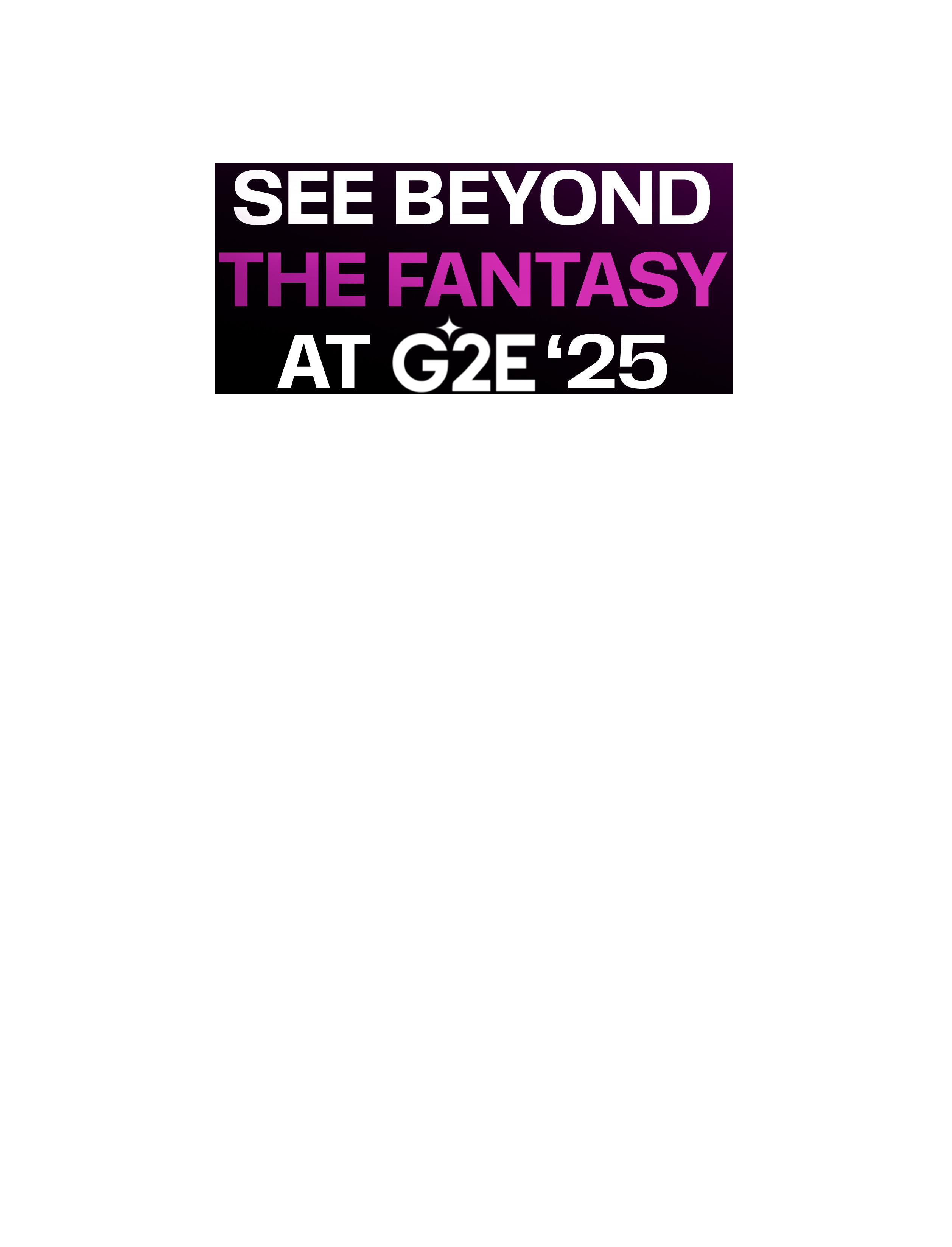Fearless Fanatics
Fanatics Sportsbook aims to break dominance of DraftKings & FanDuel
Taxing Times
Strong growth makes gambling a ripe target for tax increases









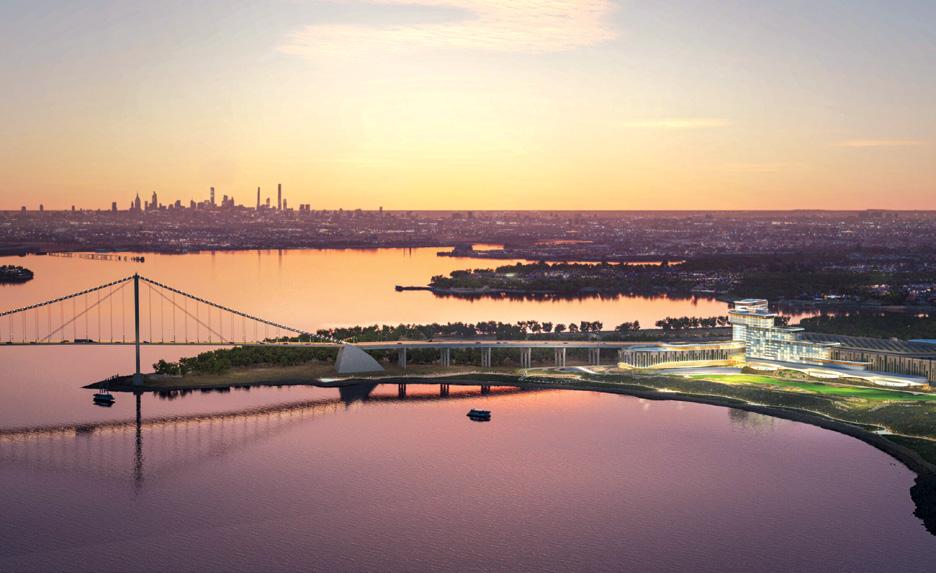




Fanatics Sportsbook aims to break dominance of DraftKings & FanDuel
Strong growth makes gambling a ripe target for tax increases













most popular news stories on GamingIntelligence.com
Illinois sports wagers top $7.6 billion in first half of 2025
Arizona sports handle approaches $4.5 billion for H1 2025
Stake.us and iGaming suppliers hit with civil suit in California
Ohio Governor calls for ban on prop bets
Ohio Lottery sales fall to $4.38 billion in FY 2025
New Jersey Lottery sales decline 8% in FY 2025
Virginians wagered $3.67 billion on sports in H1 2025
Louisiana casinos report $1.1 billion in H1 2025 revenue
Arkansas sports wagers top $300 million in H1 2025
Intralot vows to challenge loss of Maryland Lottery contract
Stay up to date with all of the latest industry news from around the world with Gaming Intelligence

INTRALOT ENTERED INTO a transformational deal to acquire Bally’s International Interactive business in a cash and shares transaction that values the business at € 2.7 billion (approx. $3.17bn).
Set to complete during the final quarter of 2025, Bally’s will receive €1.53 billion in cash and €1.14 billion of newly-issued shares in Intralot at an implied value of €1.30 per share. This will make Bally’s the majority shareholder in Intralot, while Intralot founder Sokratis Kokkalis will maintain a significant stake. Bally’s and its affiliates currently own a 33.34 per cent stake in Intralot.
The acquisition establishes a global lottery and online gaming juggernaut, which will be one of the largest companies by market capitalization on the Athens Stock Exchange, where it will continue to be listed.
The international interactive business comprises Bally’s UK and Spanish interactive businesses, a UK land-based casino acquired in Q4 2024 (Aspers in Newcastle), and royalties for certain intellectual properties. In 2024, the business recorded an 11.7 per cent increase in net gaming revenue to €685.6 million (approx. $806.1 mn), generating net income for the year
of €177.7 million. Its online casino and bingo brands include Jackpotjoy, Rainbow Riches, Botemania, Bally Casino, Virgin Games and Monopoly Casino.
Through this transaction, Intralot is taking a very different course of action from its two biggest lottery rivals – Scientific Games and International Game Technology (IGT). The former spun off its land-based and iGaming businesses (including SciPlay) to form Light & Wonder, while the latter recently spun off its lottery business to form Brightstar Lottery.
“This transaction marks a transformative moment for Bally’s as we unite our outstanding gaming and data technology with Intralot’s exceptional expertise in lottery,” said Bally’s CEO Robeson Reeves. “Together, we are creating a unique proposition that will pave the way for a new era of innovation and growth across the entire gaming spectrum.”
Reeves will assume the role of Intralot CEO upon completion, taking over from Nikolaos Nikolakopoulos, who will switch to president and CEO of Intralot’s Lotteries division. Intralot’s current group deputy CEO, Chrysostomos Sfatos, will serve as Intralot CFO.
BOYD GAMING SOLD its 5 per cent equity interest in FanDuel to Flutter Entertainment for $1.76 billion, valuing the FanDuel business at $31 billion, while Apollo Global Management completed the $6.3 billion acquisitions of IGT’s gaming and digital business and Everi Holdings. The combined enterprise now operates under the IGT name and under three business units – Gaming, Digital and FinTech.
Also on the supplier side, Novomatic is seeking full ownership of Ainsworth Game Technology through an unconditional cash takeover offer of A$1.00 per Ainsworth share, representing the same value as a scheme of arrangement announced in April. Novomatic is
currently the largest shareholder in Ainsworth with a 52.9 per cent stake and intends to delist the company if it can achieve a shareholding of over 75 per cent.
In the US casino sector, Churchill Downs Inc completed the acquisition of a 90 per cent stake in Casino Salem in New Hampshire for $180 million, while Elite Casino Resorts agreed to acquire Great River Entertainment, operator of the Catfish Bend Casino and FunCity Resort in Iowa.
Century Casinos initiated a strategic review process to enhance shareholder value, including a potential sale of the company, and Quick Custom Intelligence (QCI) enhanced its casino



management platform with the acquisition of casino analytics platform VizExplorer.
Having taken over full ownership of New York-based casino operator Empire Resorts earlier in the year, Genting Malaysia agreed to sell Empire’s non-gaming assets to Sullivan County Resort Facilities Local Development Corp. for $525 million, comprising two hotels, a golf course, an entertainment centre and multiple restaurants.
In the iLottery sector, venture capital fund Bullpen Capital has made an undisclosed investment in EQL Games to accelerate innovation and continue its global expansion, while Random State secured a strategic investment from
FDJ UNITED Ventures and ZEAL Network.
In other news, the National Football League (NFL) agreed a deal with the Walt Disney Company to acquire a 10 per cent equity stake in ESPN, in exchange for ESPN acquiring the NFL Network and certain other media assets owned and controlled by the NFL, including NFL’s linear RedZone Channel and NFL Fantasy.
Finally, Polymarket is plotting its re-entry into the US after acquiring CFTC-licensed derivatives exchange QCEX for $112 million.
Founded in 2020, the predictions market provider exited the US market after being fined $1.4 million by the CFTC for regulatory violations.
billion
billion
billion
billion
billion

States are in a race to the top when it comes to sports betting tax. Each round of budgets for the new fiscal year brings with it a competition to see which state can set the highest rate.
escalation race. The Prairie State began its regulated sports betting market with a perfectly reasonable tax rate of 15 per cent. For 2023, that rate earned total state betting tax of $150 million.
In May 2024 Illinois’ lawmakers voted to introduce a tiered tax structure for online sports betting, with licensed operators facing a maximum rate of 40 per cent of Adjusted Gross Revenue (AGR), effective from 1 July 2024.
The lowest tier increased from 15 per cent of AGR to 20 per cent, while the maximum 40 per cent tax rate applied to AGR in excess of $200 million. DraftKings and FanDuel were the only two licensees falling into this top band.
For the calendar year 2024, which had six months of the new rate, Illinois’ betting tax was $264 million, with an effective tax rate of 22 per cent.
Things got even worse for Illinois’ betting licensees with the state’s FY 2026 budget. From July 2025, an Illinois licensee will pay an addi tional $0.25 per bet on its first 20 million bets and $0.50 per bet after that.
As with the top rate of betting tax, FanDuel and DraftKings will also be hardest hit by this privilege tax and would have paid $74 million and $67 million respectively in 2024, if it had applied.
The two brands’ effective tax rate would have been 40 per cent in 2024 and will rise to over 50 per cent with a full year of all the new taxes, which puts Illinois on a level with New York and Rhode Island.
In New York, Resorts World Bet followed WynnBet in leaving the Empire State’s mobile sports betting sector. Before leaving the mar ket, neither brand earned enough betting revenue to cover the cost of the licence fee, even before they paid 51 per cent of their revenue in tax.
One response to high tax is to increase the margin and DraftKings has been trying to encourage parlay





state’s iGaming sectorand from Pennsylvania. CEO Neal Menashe cited “recent regulatory developments” as part of the reason for the closure of the company’s US iGaming operations.
Super Group’s Spin Palace and Jackpot City brands were certainly smaller players in New Jersey’s iGaming sector but still contributed
Policymakers’ logic that if a nearby state has a higher tax rate then their state must increase tax too simply perpetuates the tax escalation race. The endpoint is many states’ tax coalescing around the 40 to 50 per cent
There is a proposal in North Carolina’s Senate, for example, to double the sports betting tax rate from 18 per cent to 36 per cent.
Maryland has already increased its online sports betting tax by 5 percentage points to 20 per cent from June 2025. State governor Wes Moore had wanted a rate of 30 per cent.
House Bill 639 in Louisiana set a new rate of 32.5 per cent for online sports betting tax before being reduced to 21.5 per cent. The higher rate still increases Louisiana’s tax rate by
These three states all show that the initial ambitions were for rates of 30 per cent or more.

When Illinois introduced its banded tax rates in 2024, DraftKings stated ‘we have seen a shift to tax rates over 20 per cent in certain competitive markets, including a recent significant tax increase in Illinois. We now must consider the prospect that some states may choose to tax the industry at a rate that is in excess of what we can absorb while still generating a reasonable profit margin and remaining competitive against the pervasive illegal market that pays no taxes at all’.
In a few years’ time sportsbooks will be looking wistfully in the rear-view mirror at rates of 20 per cent, as betting taxes hurtle past 30 per cent.
DraftKings highlighted the risk of the illegal market but the other measures like subscription services, less generous odds and privilege fees also alter customer behaviour and spending. Unfortunately, the concept of long-term sustainability is not a focus for states that need money now.
The states earned $1 billion in sports and pari-mutuel betting tax for the first time in Q1 2025. Betting is a lucrative source of revenue for them and they will take the view that there is plenty more to be squeezed out before the tax race is run.
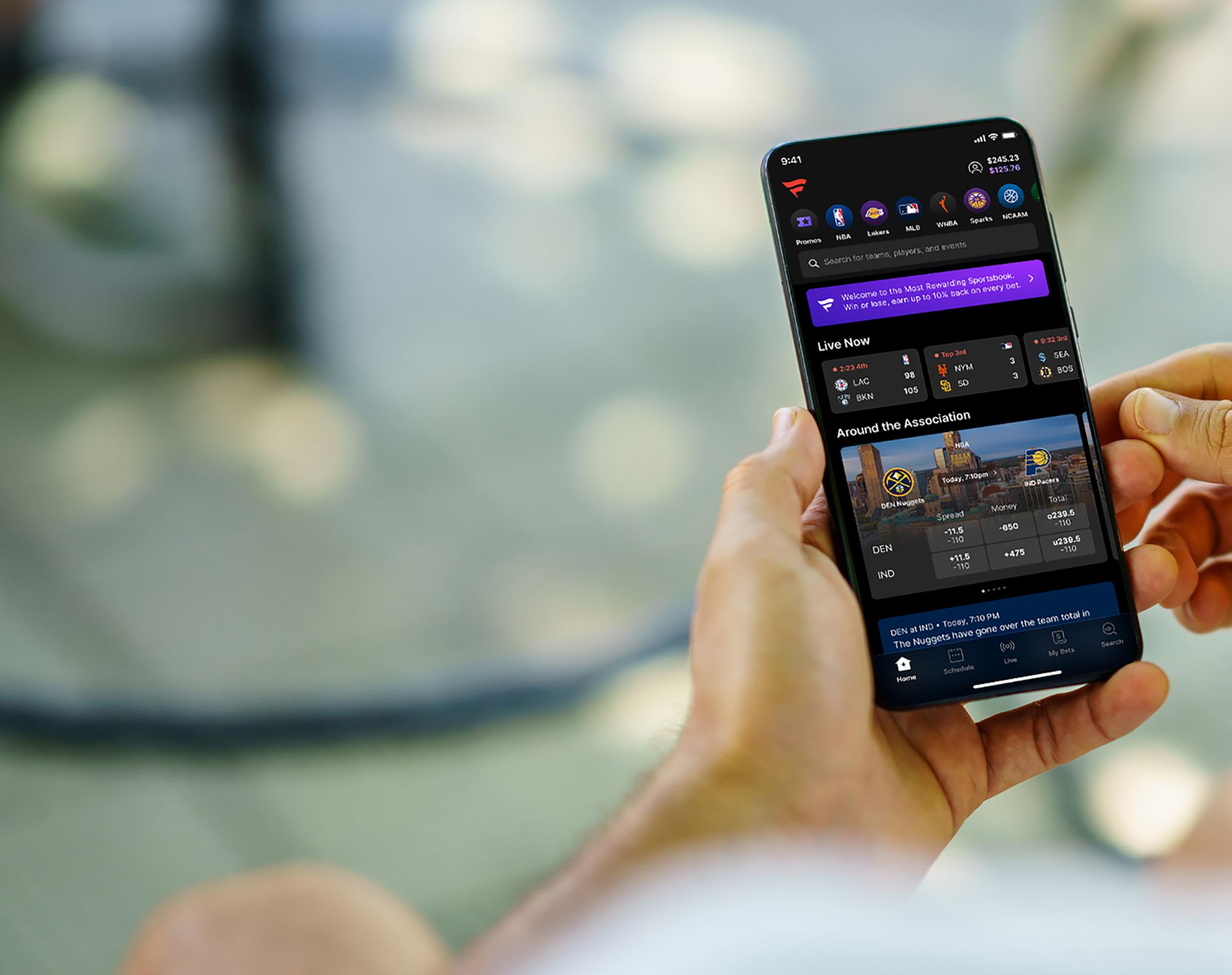
Fanatics is the not the first sports-related brand to target riches in online betting and gaming, but it may arguably be the most successful. Gaming Intelligence examines the early success of Fanatics Betting and Gaming and speaks to gaming president Conor Grant to learn what comes next
FANATICS HAS TRADITIONALLY been associated with official sports team apparel and, more recently, trading cards and collectables. Could this association with sport translate into success in betting and ultimately gaming? FOX Sports and ESPN thought they could.
Fanatics joined the fray in August 2021 when the company secured $325 million in funding to branch out from its well-established verticals. This eventually led to the creation of Fanatics Betting and Gaming, with the overall Fanatics CEO, Michael Rubin, bringing in former FanDuel chief executive Matt King to lead the venture.
Fanatics Betting and Gaming launched its first retail sportsbook in January 2023 in Maryland, with its first mobile launches coming in May of the same year in Ohio and Tennessee. The operator had a tough task on its hands as it looked to disrupt the established order dominated by runaway leaders FanDuel and DraftKings, and more established names such as BetMGM and Caesars.
It is now live with its online sportsbook in 23 US jurisdictions, with retail sportsbooks in eight.
New York is the largest online sports bet ting market in the United States and Illinois is the second largest.
In May 2025, the latest month for which Illi nois data was available at the time of publica tion, Fanatics held a comfortable third place in the market. It has held that position since September 2024, with Illinois representing its strongest market.
Its 12.5 per cent market share in Illi nois in May was more than double that of fourth placed BetRivers on 5.9 per cent. FanDuel held 30.6 per cent of Illinois’s sportsbook market and DraftKings was the market leader with 32.9 per cent share.
Fanatics is also performing strongly in New York, its second-best performing market, where it held third place in July behind market leader DraftKings and


FanDuel. It was the fastest growing sportsbook in New York with handle growth of 81 per cent, putting it comfortably ahead of nearest rival BetMGM, as well as Caesars and ESPN Bet.
Fanatic has held third place in New York since overtaking BetMGM in February.
You would think that as a late market entrant, solidifying third place in the largest markets in the US behind FanDuel and DraftKings would signal ‘mission accomplished’. Not so for Fanatics.
“Anyone who has met Michael Rubin knows how driven he is,” says Conor Grant, president of Gaming at Fanatics Betting & Gaming. “If someone in the company said we’re content being third, I think he’d have a few strong words. The objective is to scale the business, break into that top tier, and eventually become number one. We know it’s a huge hill, but the vision is clear.”

To match such a vision, you need effec tive leaders, and Rubin has found just that in
Grant has been in the online betting and gaming industry almost as long as there has been an industry, starting at bookmaker Paddy Power in 1998 and going on to hold sen ior leadership positions across sportsbook and casino at a number of leading brands. He was honoured in the Gaming Intelligence Hot 50 of when serving as chief executive officer of Flutter Entertainment’s UK & Ireland
Grant joined Fanatics one year after the com pany’s boldest move in the sector– the May 2023 acquisition of PointsBet’s US assets for $225 million. The deal delivered a trifecta of value: state market access, proven technology infrastructure, and a live customer base.
Although Grant was not there for the acquisition and integra tion, he sees how important it has been to the growth of

Fanatics Betting & Gaming over the past year.
“I think it’s fair to say it’s been incredibly successful,” he says. “We know how many acquisitions end up in terms of head count loss from the acquired business, but that simply wasn’t the case here. Many of the people who were important to the day-to-day running of the PointsBet business are here now.
“We also managed to migrate a lot of customers and keep them active on our platform, so I think it’s fair to say we wouldn’t be where we are today without that acquisition.”
Central to the Fanatics ecosystem is FanCash, a loyalty currency that goes beyond traditional bonus models with a cross-platform currency connecting sportsbook, casino, e-commerce, and even live stadium experiences.
Players earn points through gaming activ
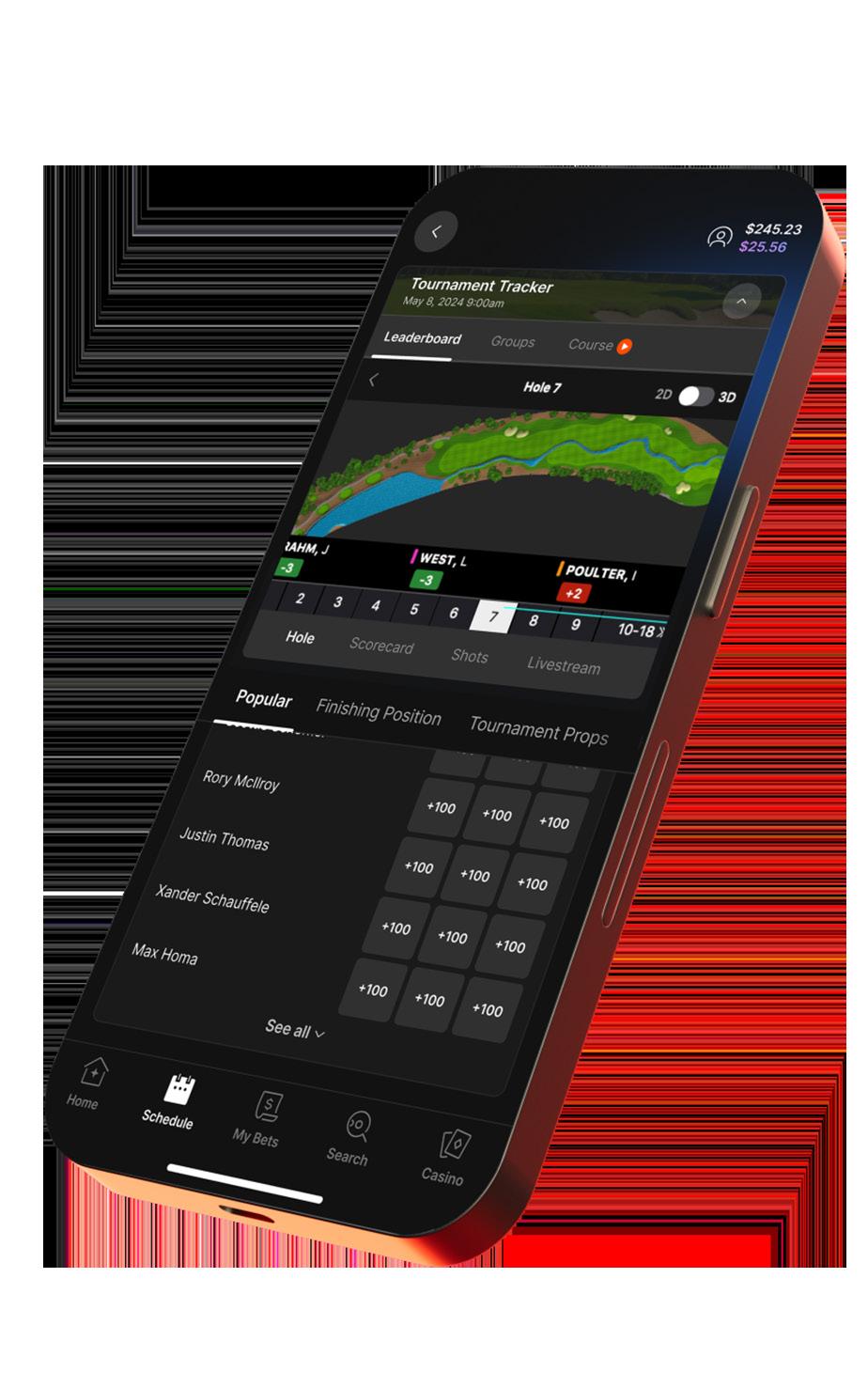
“The objective is to scale the business, breaking into that top tier, and eventually become number one. We know it’s a huge hill, but the vision is clear.” President of gaming Conor Grant

for example, FanCash is integrated with the Colts’ in-stadium currency, allowing fans to use their rewards for purchases.
“What we are finding already with FanCash is that consumers are engaged with it, and how much they already use it,” says Grant.“This is just the beginning. We’ve built maybe 30 per cent of what FanCash is capable of. The next iterations will drive even more personalisation, access, and real-world value.”
FanCash leverages one of Fanatics’ strongest competitive advantages, its customer database of more than 100 million users from its core commerce business. Combined with advanced CRM capabilities, that reach gives Fanatics a head start in user acquisition that most market entrants can’t buy.
“We have seen great success in pulling sportsbook customers from our main commerce database, which is a database of over 100 million people, and we have been able to mine that and successfully bring customers through, which helped us out massively in the early stages,” Grant explains.
“What we have also noticed in terms of casino is that American sports bettors love to play casino. We have seen our sports bettors feeding into our casino segment more so than, say, the collectables part of the business.
“What do sports betting, casino and collectables all have in common? It’s all about entertainment,” says Grant. “So we will always see crossover from all of the segments into each other, which I think is something unique to Fanatics.”
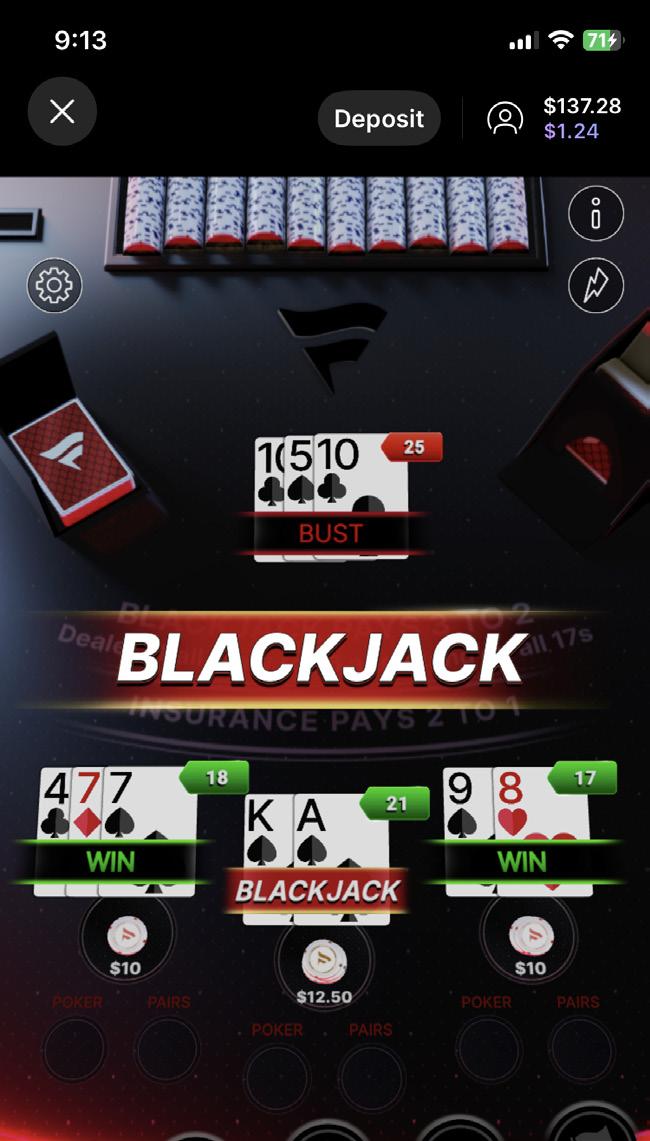
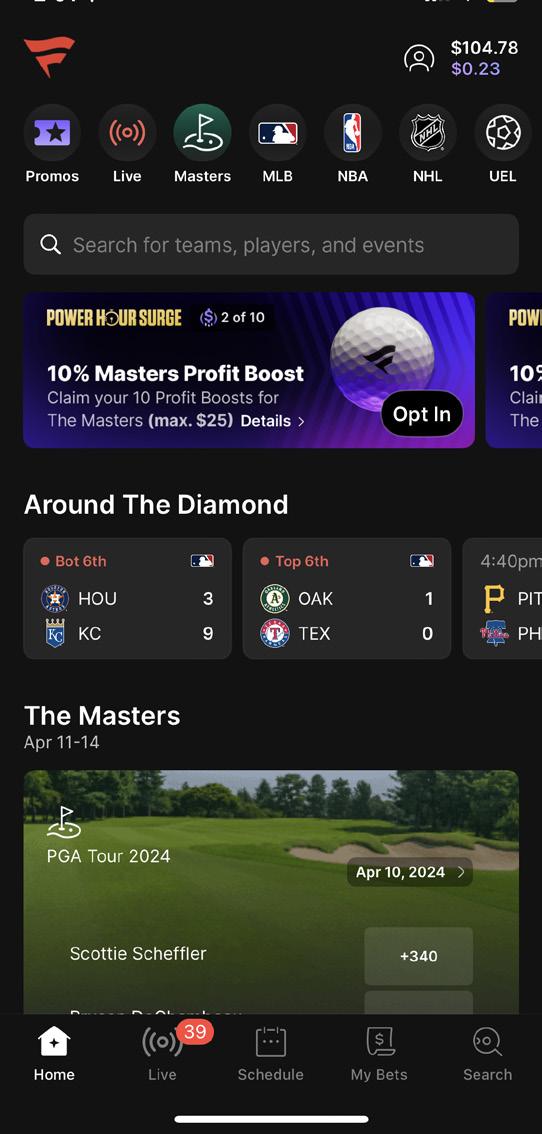
While Fanatics Betting & Gaming has had it biggest early success in sports betting, the company’s plans for online casino are no less ambitious. The company has approached online casino with a deliberate strategy: stay quiet, build solid foundations, and emerge with a product capable of competing with the best.

“We were late to market, no question,” admits Grant. “But that was a conscious decision. We didn’t want to go live until we were confident we could deliver a premium experience that met the expectations of the US casino customer. And we knew that would take time.
“From when I arrived at the company to where we are now in the casino part of the business, it’s night and day. We recently launched our standalone casino app, our integrated sportsbook and casino app, and we also have casino live on desktop as well.
“We have now got 92 per cent coverage in the market in terms of content, which, when all put together, puts us at a really competitive place,” he says. “We’ve gone from six people on the casino side last year to a fully staffed, specialist team. Our mission is clear: make Fanatics the number one destination for slots in the US.”
An ongoing question is when will more US states legalise iGaming. There are currently only seven states in which online casino is legal, with Fanatics live in four of them: Michigan, New Jersey, Pennsylvania, and West Virginia. The other legal iGaming states are Connecticut, Delaware, and Rhode Island.
Whatever come next, Grant believes that the business has built the foundations needed
Fanatics launched its standalone casino app in May 2025
to target leadership in any new market.
“We will evaluate each state on an individual basis. Compared to where we were 12 to 18 months ago, we have a completely different approach to how we enter new states.
“Back then we were still assembling the team, building the product and moving across the assets from the PointsBet acquisition,” he explains. “In terms of our maturity cycle, we have gone from zero to one, and now we are looking at going from one to two.
“When new states do open up, we are now better prepared. We already have market access partners who will aid us in entering new markets, and we have drastically improved our product.
“We understand how competitive the space is, and we aren’t complacent; we know we have to be very good to beat them when we enter new markets. I think that if and when states open up, we will be at the door waiting with a great product and team.”
So, what does the future hold for Fanatics? Grant believes that this year’s work will lead to even greater success in 2026.
“At Christmas time, I like to sit down and reflect on what has gone on in the previous year, and I believe all the hard work we are doing this year will mean that we will go hard in 2026 and go after our major competitors.
“We are doing things today, and there is a lot more to come, which I think will help us reach our targets of where we want the business to go.”
With its sportsbook market share growing, its casino product on the rise, and FanCash poised to penetrate its ecosystem even deeper, Fanatics is prepared to challenge the established order.
Fanatics has already done what ESPN could not. Who would bet against them taking the fight to DraftKings and FanDuel? n


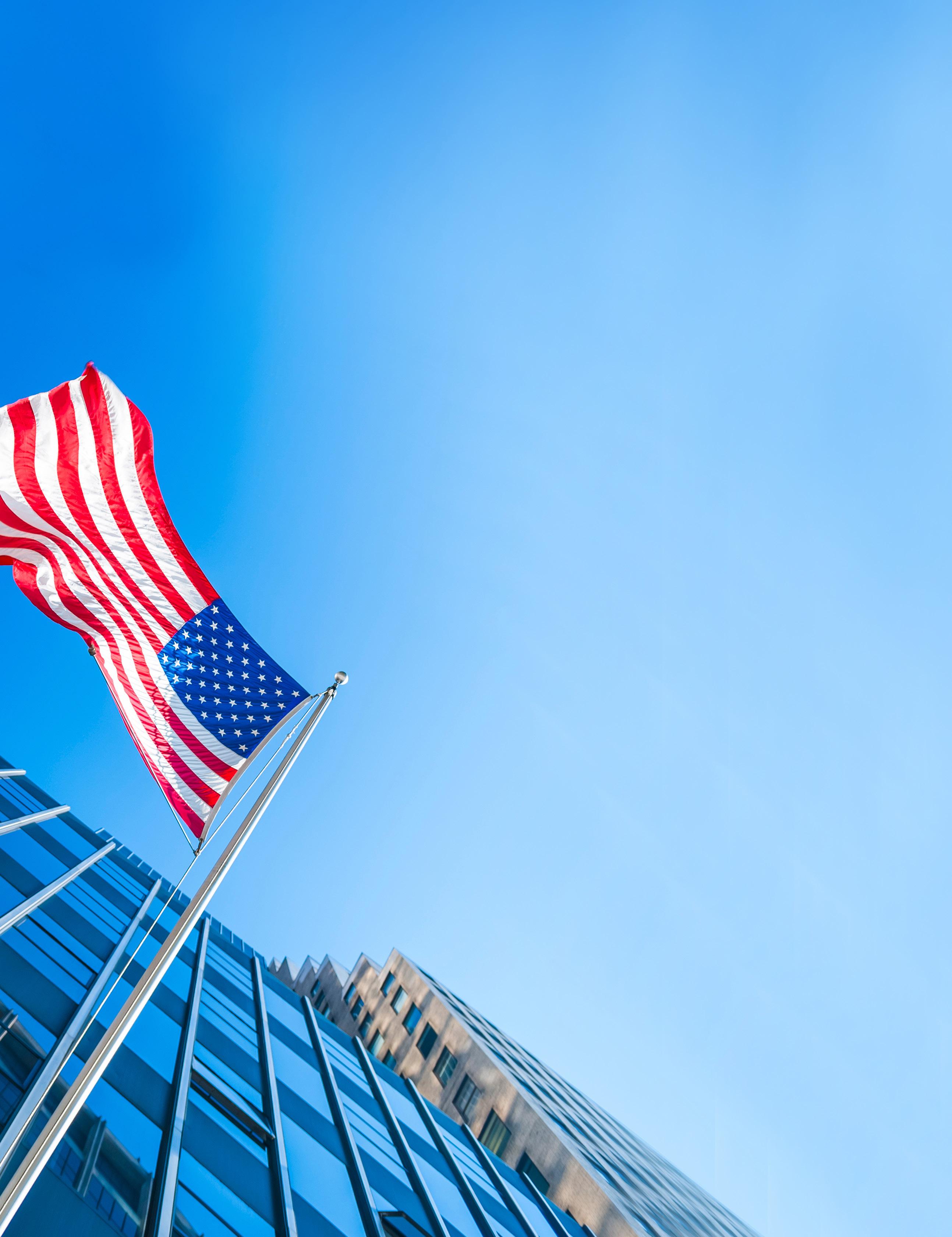

The bidding process for three new commercial casino licences in New York is opening the doors to the state’s first integrated resorts, which
up to be one of the most fiercely contested bidding processes ever seen in the United States casino gaming market, with lucrative opportunities available to the winners and potential transformational developments
The New York Gaming Facility Location Board is tasked with overseeing the siting and evaluation process for the downstate casino licences, and will have the difficult job
The competition is fierce. There are eight applicants gunning for just three licences, with the proposals involving billionaires, property developers, rival casino operators… and even Jay-Z.
Some of the biggest casino operators in the world are pitted against each other - Caesars, Bally’s, Genting, Mohegan, MGM Resorts, Hard Rock, Rush Street Gaming and Saratoga – five of whom will be left disappointed… and out of
The proposed projects cover potential venues in Manhattan, the Bronx, Queens, Brooklyn and Yonkers. They represent billions of dollars in private investment, thousands of jobs, and numerous amenities that can transform a community.
The eight applicants have paid a $1 million application fee, and each project must obtain all local entitlements, including zoning approval, and then be approved by a specific

Community Advisory Committee (CAC), which consists of appointees of the elected officials representing the physical location of the proposal.
Throughout the summer, Committees have been holding public hearings to gauge support and opposition to their respective projects. Only those that meet both statutory requirementszoning and CAC approval – will be considered by the Board.
“This is a tabula rasa – there are no frontrunners or favorites,” said New York State Gaming Commission chair Brian O’Dwyer after the applicants were made public in June.
Those approved by their CAC will then submit supplemental application material, including a proposed tax rate, to the Board for evaluation and consideration, with a final decision expected to be made by 1 December.
The revenue from new gaming facilities will benefit New York’s public schools, mass transit, local governments, and problem gambling treatment services.
Two of the applicants for the three licences are already operating as video lottery terminal
(VLT) gaming properties - Resorts World New York City and Empire City Casino.
These two venues are the best performing commercial gaming venues in New York State and earned revenue of $691 million and $607 million respectively in FY2024.
The weakness of these two bids could be that they are perceived to offer limited new revenue growth, already being successful VLT venues.
A completely new venue, for example Caesars Palace Time Square, might offer better new revenue potential, attracting tourists to a Midtown Manhattan destination, while other bids provide transformational opportunities for communities in the Bronx, Queens and Coney Island. Three of the bids propose venues in Manhattan, so it seems likely that at least one of these bidders will miss out.
There are currently 13 commercial gaming venues in the Empire State, comprising four fully-fledged commercial casinos and nine video lottery terminal (VLT) gaming venues – comprising seven VLT racinos and two land-based VLT properties.
The New York gaming market is heavily focussed on slots, with table games only accounting for 6 per cent of annual revenue.
In FY2024, total revenue from commercial gaming was $3.11 billion, of which VLT venues contributed $2.44 billion. The casinos slots accounted for a further $483 million, alongside $179 million from table games, $11 million from poker tables and $5.1 million from sports wagering. There were 17,214 VLTs and 5,210 slots installed across the venues, alongside 288 gaming tables and 55 poker tables.
The four existing commercial casinos earned annual revenue of $678 million, down slightly from $681 million in 2023, with the average revenue per casino amounting to $170 million. This compared to an average of $243 million per VLT venue. The average daily win per slot machine in the casinos was $254, while the average daily win per VLT was $389.
There are another 21 tribal casinos in New York State run by three federally-recognised tribal nations - Seneca Nation of Indians, Oneida Indian Nation of New York, and St Regis Mohawk Tribe – but no figures are available for these venues.




As the bidding process for New York’s three downstate casino licenses heats up, GINA takes a look at the eight applicants
Developed by Silverstein Properties, Rush Street Gaming and Greenwood Gaming & Entertainment
Who’s involved?
Silverstein led the historic redevelopment of the World Trade Center campus after 9/11; Rush Street and Greenwood operate regional casinos in Chicago, Philadelphia and Pittsburgh, as well as in Schenectady, New York – the most successful of New York’s upstate casinos. Proposed Site: Hudson Yards, Manhattan
About the site:
Formerly a car dealership but now sitting vacant, the site is 92,000 square feet of unde -

veloped land at 41st Street and 11th Avenue, approximately one block north of the Javits Center. It is close to Times Square, Penn Station, the Port Authority Bus Terminal, the ferries to New Jersey, and the Lincoln Tunnel. The Avenir site is fully owned and is shovel-ready upon approval.
What’s on offer?
The $7 billion development includes 200,000 sq. ft of gaming floors, a 1,000-room Hyatt hotel, over a dozen restaurants and bars, and a food hall with favorite local West Side eateries. Additional amenities include a large ground-floor public art gallery for local artists and community-use; conference and meeting space; a spa and outdoor skyline pool; and a 150-seat entertainment venue.

Manhattan is the world’s preeminent tourist and entertainment center, with a recent state-commissioned study projecting that a destination casino there would create the most taxable gaming revenue for the city, state, and Metropolitan Transpor-
As this edition of GINA went to press, two of the bidders fell out of the race after failing to gain community support. Caesars Palace Time Square is no longer in the running after facing very vocal opposition from other entertainment venues in the area, including Broadway theatres and restaurants. Rush Street Gaming’s plans for The Avenir at Hudson Yards also hit a wall after failing to gain community support, leaving just one venue still in contention in Manhattan.
tation Authority (MTA) – 14 per cent more revenue than a casino in Queens. The report also claims that a Manhattan casino would generate 40 per cent more tourists than a casino in Queens. Manhattan also has the highest visitation from out-of- state residents, and is the best location to attract tourists, VIPs, and business travelers as patrons.
The Avenir’s priority is the well-being of its neighbors, including the 2,300 families that live in Silver Towers and River Place, the buildings Silverstein developed and own directly across the street from The Avenir site, to ensure benefits for the Hell’s Kitchen, Clinton and Hudson Yards communities.
Millions of dollars will be directed in new funding towards high-priority community needs, with The Avenir forming partnerships with The Hudson Guild, WIN, Covenant House and Rethink Food among others. It will invest equity capital in partnership with Metro Loft Developers to create office-to-residential conversions delivering more than 2,000 new Manhattan apartments, including at least 500 units of permanent affordable housing.
More than $2.5 billion generated in taxable gaming revenue in the first stabilized year of operations.
The Avenir will initially create 4,000 union construction jobs, and once fully operational will have more than 5,000 team members, with 4,037 of those new jobs projected to be full-time and 1,040 part-time.

Developed by Bally’s Corporation
Who’s involved?
Led by chairman Soo Kim, a Queens native, Bally’s owns and operates 19 casinos across 11 states and holds online sports betting licenses in 13 jurisdictions in North America. Proposed Site: Ferry Point, The Bronx
The vision for Bally’s Bronx is a $4 billion integrated resort spanning 16 acres of parking lots and practice green area of Bally’s Golf Links at Ferry Point, by developing a former landfill. It is surrounded by a 222-acre golf course and a cemetery, bracketed by two major bridges that each carry more than 40 million cars annually, while accessible in less than 20 minutes by public ferry from Manhattan’s Upper East Side.
What’s on offer?
Spanning more than 3 million sq. ft, Bally’s Bronx will include a 500,000 sq. ft gaming space, featuring 3,500 gaming machines, 250 table games including a poker room. The development includes a 500-room hotel, an array of dining and entertainment venues, a 2,000 capacity event centre, meeting spaces, and parking for 4,660 vehicles.
According to every governmental statistic and benchmark, the Bronx is the borough that suffers from a lack of economic opportunity, with the integrated resort directly creating thousands of good-paying unions jobs as well as hundreds of millions of dollars in community benefits. Bally’s is aiming to transform an underutilized corner of the Bronx into a vibrant and lasting economic engine, a hub for tourism, and a destination landmark.
Bally’s comes to the project with significant financial wherewithal, including an approximately $2.5 billion investment commitment from Gaming and Leisure Properties.
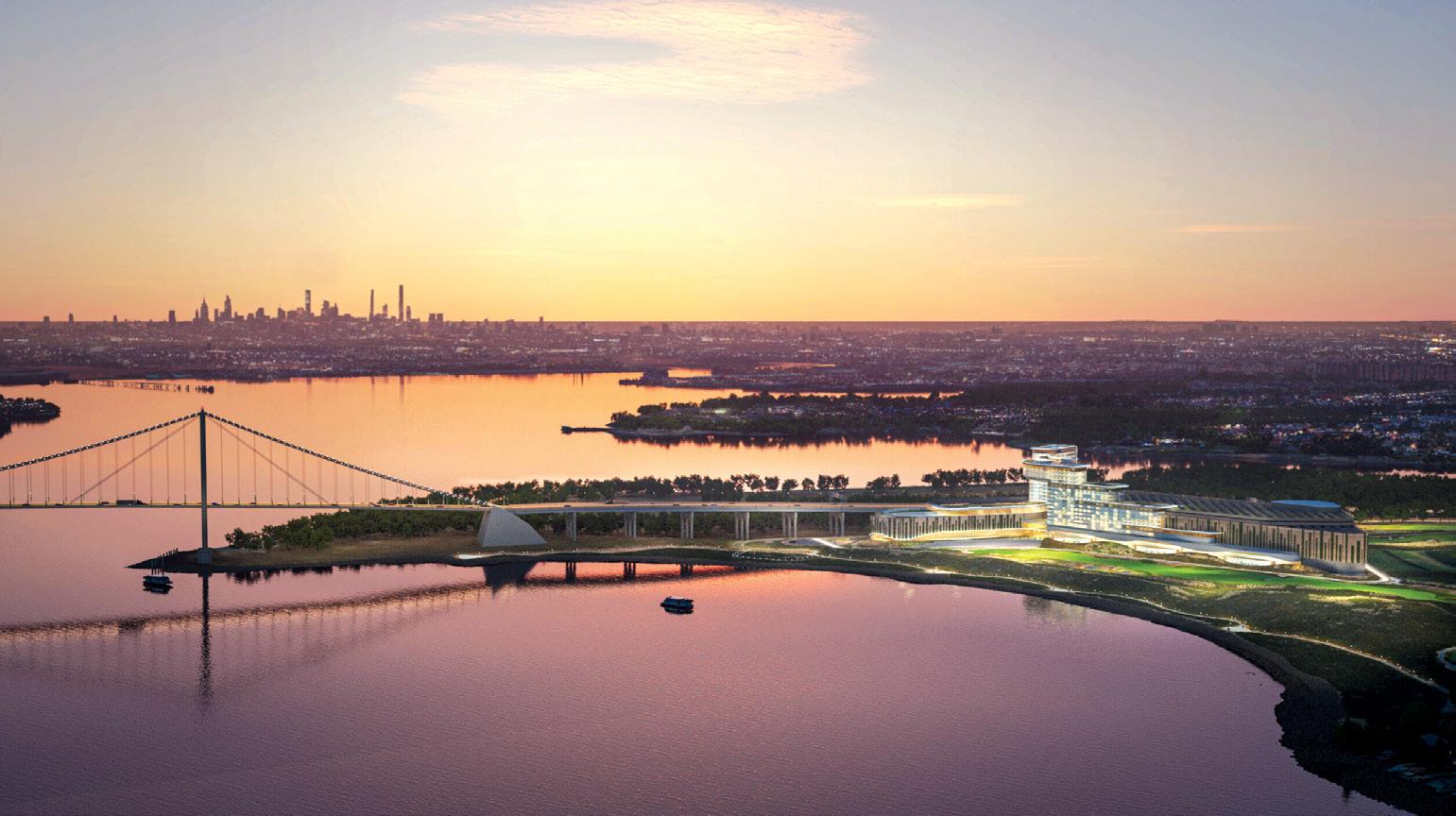
Bally’s has pledged $625 million for an array of community benefits, including direct financial support for local schools, housing, mental health, public safety, transportation upgrades, parkland enhancements and community organizations. It has also created an equity ownership initiative with up to 9 per cent of the equity in the Bally’s Bronx project, offering local residents an opportunity to directly benefit from the project’s success.
Bally’s is also investing heavily in the area’s infrastructure by allocating $100 million for parkland improvements, including new walking paths, playgrounds, and the revitalization of Ferry Point Park, as well as at least $75 million for transportation upgrades. Public
safety will be strengthened through a $10 million upfront investment in new NYPD substations and ongoing support for increased police presence in the direct catchment area of the project.
Over $1 billion in gross gaming revenue (GGR), $1.5 billion in total revenues, and more than $200 million in direct gaming taxes annually.
During construction, 15,000 union jobs will be created, and once operational, the gaming facility will employ nearly 4,000 permanent staff, making it the second-largest private employer in the Bronx.
Bally’s is a gaming and hospitality company. This is what we do. We are not a company from another sector seeking to become involved in gaming as a second or third source of revenue. Bally’s Bronx is more than a development - it is a once-in-a-generation transformational opportunity for the Bronx. If Bally’s is awarded the opportunity to build Bally’s Bronx, we will make the Bronx, New York City and the state of New York a very proud partner..
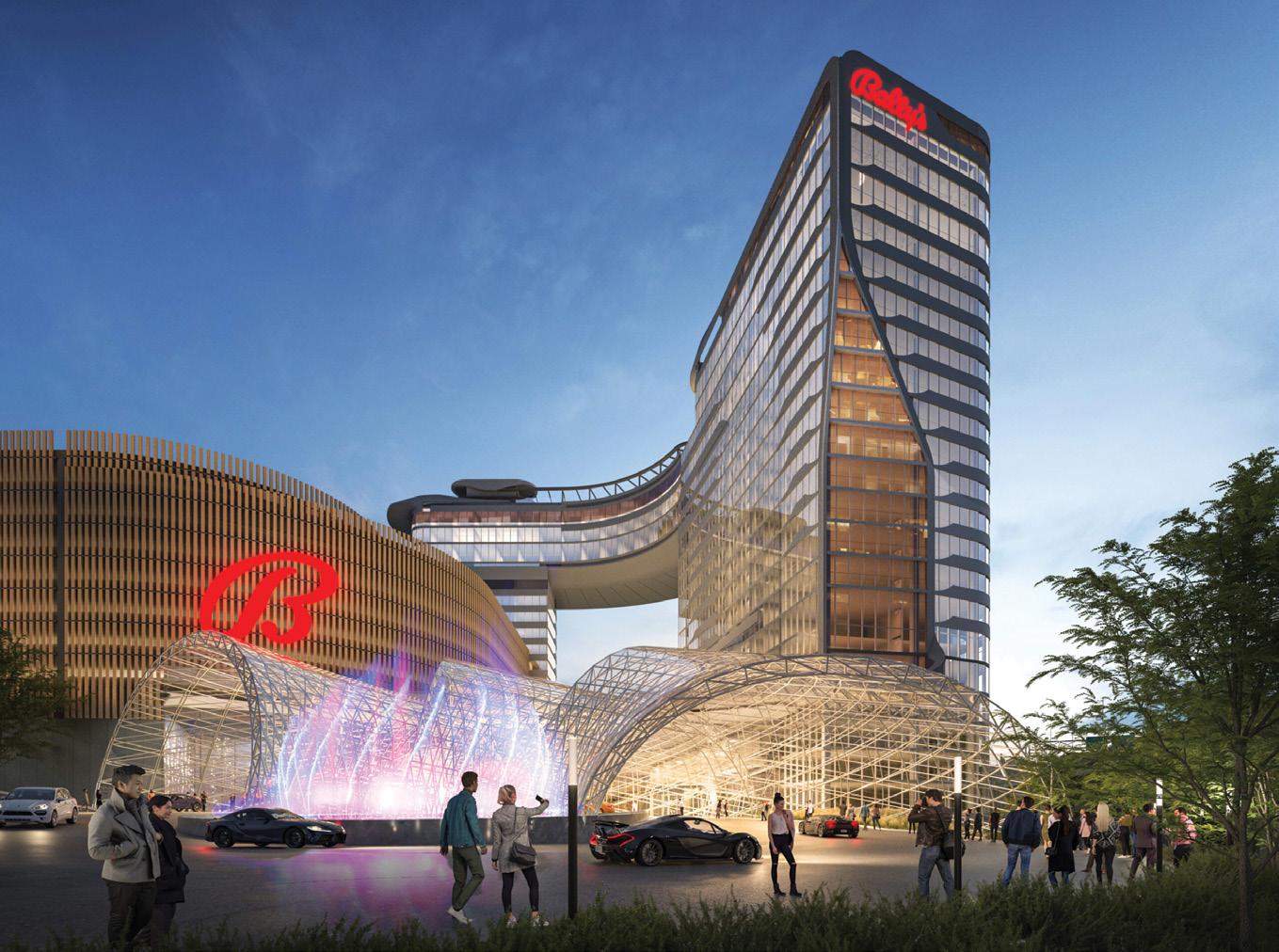
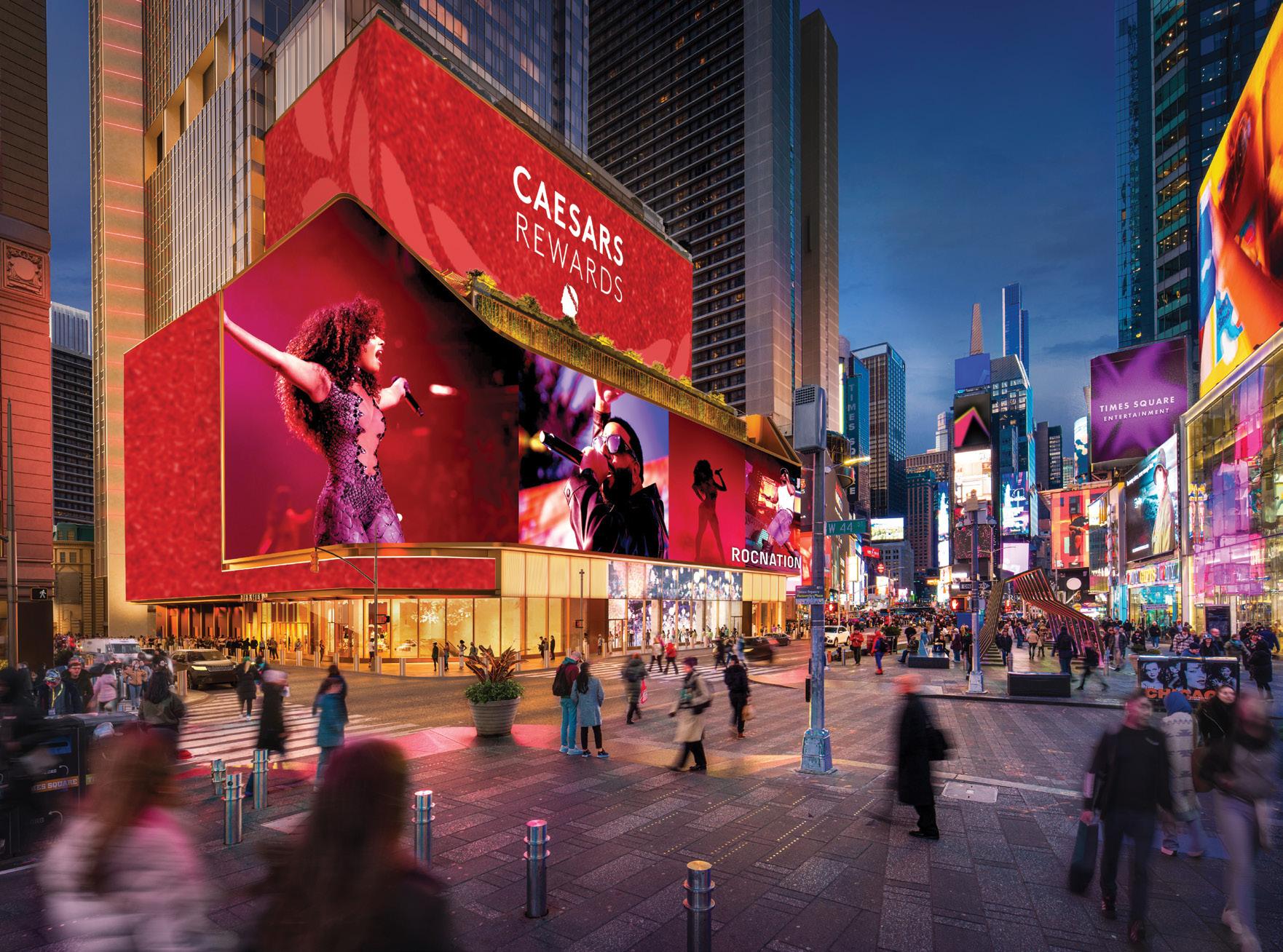
Developed by SL Green, Caesars Entertainment, Roc Nation and Live Nation
Who’s involved?
The project is led by SL Green, Manhattan’s largest office landlord; Caesars Entertainment, which operates 50 properties across the US and a successful sportsbook in New York; Roc Nation, the entertainment powerhouse founded in New York by Jay-Z; and Live Nation, the live events company with a longstanding presence in Times Square through existing venues. Proposed Site: Times Square, 1515 Broadway, Manhattan
Caesars Palace is a project built by New Yorkers with deep roots in the city. The second of three casino proposals in Manhattan, Caesars Palace would bring a new attraction to Times Square by transforming an existing office building at 1515 Broadway. It is the most accessible site via public transportation of any

proposal, with the development including a comprehensive congestion mitigation plan, which will substantially reduce congestion and maximize visitation by mass transit.
The $5.4 billion proposal features a 150,000 sq ft casino with over 3,000 slots, 190 table games, 13 private gaming salons, a World Series of Poker room, and the Caesars Sportsbook at The 40/40 Club. Other amenities include a 992-room hotel, with restaurants featuring local and international culinary innovation, a wellness retreat, and nightclubs and entertainment curated by Roc Nation.
The Times Square proposal was arguably the most beneficial for New York, given its ability to tap into out-of-state money from the throngs of tourists in the area. An estimated 50-60 million tourists visit Times Square each year, something that may be hard to replicate in Brooklyn or Queens.
Times Square comprises only 0.1 per cent of NYC’s land area, yet it supports 10 per cent of the City’s jobs and generates 15 per cent of its economic output. This project protects and enhances Times Square by providing a sustained source of private investment and new entertainment that will appeal to existing tourists to Times Square and attract new
visitors from around the world.
The project has committed $250 million of support to initiatives and groups that include childcare for Broadway workers, a civil rights museum and mental health services. This includes $127 million of direct investment for improvements to Times Square and Hell’s Kitchen, delivering substantial benefits to safety and security, publicly accessible restrooms, sanitation, mental health services, and improvements to the Times Square area more broadly.
More than $23.2 billion in GGR and $7 billion in direct tax and fee revenue in the first 10 years of operation, and forecast to drive over $26.7 billion of new revenue to neighboring businesses.
Over 3,800 workers from New York will be directly employed, while construction of the project will provide approximately 3,011 jobs in the state.

Developed by Thor Equities, The Chickasaw Nation, Saratoga Casino Hotel, and Legends Hospitality Group
Who’s involved?
Anchored by Thor Equities founder Joe Sitt, a South Brooklyn native, the project involves Global Gaming Solutions, the commercial operating arm of tribal casino operator The Chickasaw Nation; Saratoga Casino Development, operator of the most successful racino in Upstate New York; and Legends, a live events company trusted by iconic brands such as the New York Yankees.
Proposed Site: Coney Island, Brooklyn
About the site:
Coney Island has been known as a destination for recreation for more than a century, which reached a peak during the first half of the 20th century but has declined in popularity in recent years. The Coney Island Resort and Casino project will reignite the iconic neighborhood, making it an economic engine of South Brooklyn.
What’s on offer?
The Coney’s $3.4 billion proposal will be a 1.4
million square foot entertainment complex, including a casino with three main floors of gaming, including over 230 table games and over 4,500 slots. Other key features include a 500-room hotel, a 25,000 sq. ft entertainment venue, a 116,000 sq. ft convention centre, over 20 restaurants, as well as 92,000 sq. ft of retail and recreation space.
Once the horseracing capital of the country, today the unemployment rate is 17.2 per cent, over twice the Brooklyn rate of 7.2 per cent, while 28.7 per cent of families in the area live below the poverty line, 36.2 per cent are food insecure, and just 44.2 per cent of residents aged 16 and older are employed - the lowest employment rate in New York City. This is an area that has been promised reformation and transformation year after year, with little to show for it.
The Coney has committed to local hiring, local business development and support, and community mitigation, reflected most directly in a $200 million Coney Island Trust, dedicated to public improvements, economic mobilization and community engagement, ensuring residents benefit deeply and directly from the transformative project.
This is more than redevelopment; it’s a reawakening, an opportunity unlike any other to positively impact historically marginalized communities swiftly and tangibly. No project embodies the essence of realizing dormant economic opportunity and potential as completely as The Coney. Coney Island’s redemption story is here, ready to reclaim its role as New York’s timeless icon of entertainment and innovation. G2E
In addition, a $15 million annual fund for the first five years of the casino will be dedicated directly to community mitigation efforts, enhancing local police, fire, and EMS services, combined with a firm commitment and clear plans to support and enhance the existing local business and entertainment landscape.
Annual GGR of $1.45 billion in its first year of operation, rising to more than $2 billion by year 10.
The project would bring 4,000 union construction jobs and 4,500 permanent jobs, and over 2,500 jobs from indirect and induced effects.



Developed by Soloviev Group, Mohegan Tribe and Banyan Group
Who’s involved?
Soloviev Group has a stellar track record of large-scale developments on Manhattan’s East Side and across the US; Mohegan operates casinos in Connecticut, Pennsylvania and Canada; and Banyan Group is a leading operator of urban resort destinations around the world. Proposed Site: 686 1st Avenue, Manhattan
About the site:
The $11.1 billion investment will turn the largest undeveloped property in Midtown, formerly a brownfield site, into a 3.9 million sq. ft global development destination and community center point in Midtown East - the focal point for several of NYC’s most recent development initiatives. At the heart of Freedom Plaza is a 4.77-acre publicly-accessible waterfront park, offering a green oasis roughly the size of Manhattan’s Bryant Park. The entire shovel-ready
If Freedom Plaza is going to represent the city of New York, the workforce needs to represent New Yorkers, too. Throughout both the construction and operation of Freedom Plaza, diversity will be a priority. This is reflected in our plans to recruit with the principles of equity and inclusion in mind, through our partnerships with minority- and veteran-owned businesses, and our celebration of the historical and present-day diversity of the Murray Hill community. G2E
riverfront site is owned by Soloviev Group.
What’s on offer?
Freedom Plaza will offer distinct experiences and two unique-to-New York gaming entertainment leisure complexes, totalling 580,000 square feet. Amenities include two flagship hotels (1,251 rooms), the largest wellness centre in Manhattan, over 30 food and beverage options, a conference and entertainment space, and the nearly 5-acre park, pathways, and esplanade that covers 70 per cent of the site.
Additional assets include a City Market Hall with neighbourhood-serving restaurants; a day care facility and other community services; an open-air amphitheatre; a community centre; urgent care medical facility; a museum with architecture seamlessly integrated into the park and waterfront; public art exhibits; and recreation trails.
As with The Avenir and Caesars Palace bids, Freedom Plaza points out that Manhattan is the global epicenter of tourism, culture and

entertainment, with its proposal connecting the historic neighbourhood with its longobscured waterfront, becoming the only triborough waterfront in NYC.
The project addresses NYC’s housing crisis by introducing over 1,000 new apartments, including 513 units of affordable housing - the largest affordable housing component of any of the proposed projects.
Mohegan and Soloviev are also committing to the greater of two per cent of all gaming profits, and $5 million annually, to an evergreen fund for off-site programs and neighborhood improvements.
Annual net revenue to exceed $2.2 billion in year one of operation and $4.2 billion in year 10.
The project is estimated to support 25,875 fulltime and part-time jobs during construction, and 13,403 jobs once operational.



Developed by MGM Resorts International
Who’s involved?
MGM Resorts owns 31 destinations around the world, and holds casino licenses in 9 domestic and international jurisdictions.
Proposed Site: Empire City Casino, 810 Yonkers Avenue, Yonkers
About the site:
Empire City Casino at Yonkers Raceway has anchored the entertainment and tourism culture in downstate New York for more than a century, and is the largest private employer and taxpayer in the City of Yonkers.
MGM plans to reinvest $2.3 billion to transform the Empire City Casino at Yonkers Raceway site into a commercial casino and entertainment destination, while continuing to operate its historic horseracing track and parimutuel operations.
Plans include a full renovation and expansion of Empire City’s existing gaming areas, including high-limit gaming spaces and a new 10,100 sq. ft BetMGM Sportsbook. Other amenities include a 5,100 person capacity entertainment venue, a 9,300 sq. ft meeting space, five new restaurant venues, including a multiconcept Food Hall, and new beverage concepts featuring a center bar, a high limit lounge and two additional walk-up bars.
Since opening in October 2006, Empire City Casino has generated more than $5 billion for New York State education, including $1.6 billion since MGM Resorts assumed ownership in 2019. If awarded a license, 80 per cent of the venue’s tax revenue will go to the state education fund. The remaining 20 per cent will be split between the City of Yonkers - New York’s third-largest city - and the surrounding counties, with 10 per cent directed to the City of Yonkers, 5 per cent to Westchester County and 5 per cent divided between Rockland and Putnam counties.
MGM will also be obligated to continue funding substantial horse racing purses amounting to more than $70 million by year 4 of operations – something that does not apply to non-video lottery terminal (VLT) facility appli-
For generations, Empire City Casino and Yonkers Raceway have been at the center of entertainment and tourism in downstate New York. Its rich history – including two historic wins nearly a century ago by the legendary Seabiscuit – is woven into the fabric of the City’s economy, culture, and lore. MGM Yonkers will build upon this legacy, and we hope to one day soon welcome you to witness and enjoy all the incredible amenities and experiences that this gaming license has the potential to unlock.
cants. All of this results in an effective rate of tax that is higher than what might otherwise be collected from other candidates.
The project includes significant investments to support public infrastructure in the City of Yonkers, including improvements to roads, water lines and traffic technology. Energy efficient methods to conserve water and harness solar energy are also an integral part of the proposal.
Additional commitments include $2 million in annual funding for the costs of two additional sector police officers whose primary focus will be Empire City and the immediate surrounding area, and partially funding the replacement of a section of an existing water line in Central Park Avenue or fully funding its cleaning and relining.
Between $1.03 billion and $1.39 billion in annual GGR, which is an increase of between 92 per cent and 129 per cent over current VLT operations.
Job creation:
More employment opportunities will be created for all members of the community, with an estimated total headcount rising from 2,287 to 3,057. This includes an increase in incremental full-time headcount from 1,412 to 2,104, and a rise in incremental part-time headcount from 222 to 300.


Developed by Steve Cohen, Hard Rock International, McKissack & McKissack, and Siebert Williams Shank & Co.
Who’s involved?
New York-born Steve Cohen has been the owner of the New York Mets baseball team since 2020; Hard Rock is one of the most recognized hospitality brands in the world and has completed over $15 billion of casino development since 2000; McKissack & McKissack is the nation’s oldest minority and woman-owned professional design and construction firm; and Siebert Williams Shank & Co. is a minority and women-owned investment bank
Proposed Site: 126th Street, Willets Point, Queens
About the site:
Hard Rock Metropolitan Park is a shovel-ready proposal that will transform 50 acres of underused asphalt next to Citi Field into an entertainment district, anchored by 25 acres of new public park space and athletic fields.
What’s on offer?
Taking up just 10 per cent of the project’s size, the integrated resort will feature 286,208 sq. ft of gaming space, including 5,000 slots, 375 live dealer tables, 30 poker tables and an 18,381 sq. ft sportsbook. Other amenities include a 5,650 capacity live entertainment venue, 18 food and beverage venues, a convention center, retail areas, and a 1,000 room hotel.
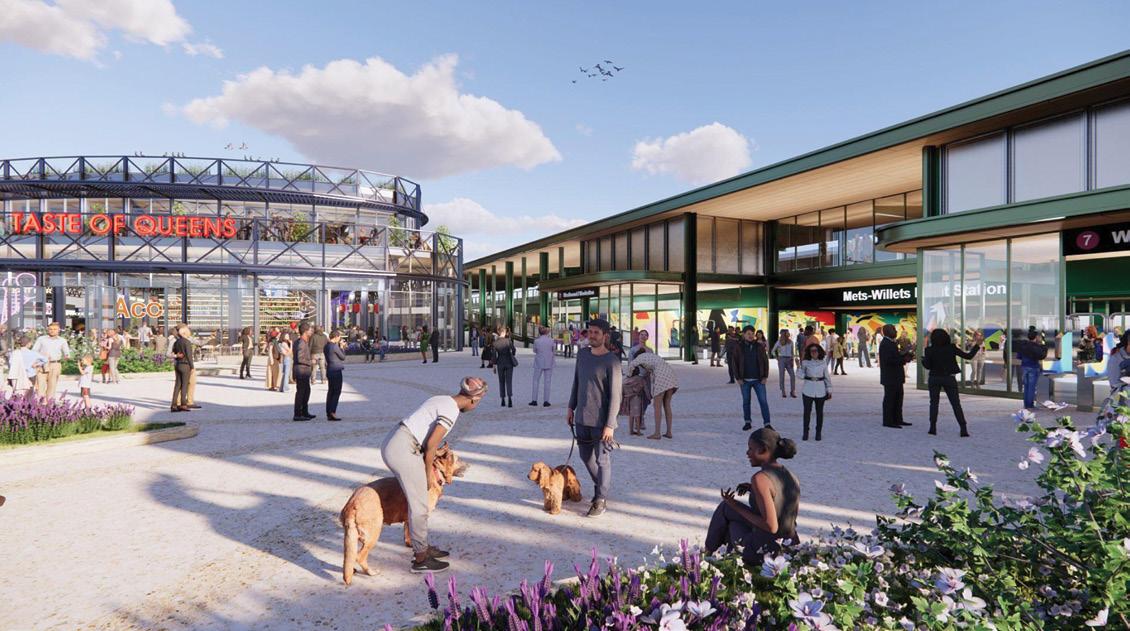
The project will deliver approximately $1 billion in benefits for Queens via public and transit improvements, together with a $163 million impact fund and $50 million for local health, youth, and senior service initiatives. Local investments are centred around 25 acres of new park space, including expansive bike paths, athletic fields, and linking Flushing Meadows Corona Park to Flushing Bay and Citi Field via the integrated resort.
Metropolitan Park will become the city’s first true stadium district, centred between baseball at Citi Field, tennis at the USTA Billie Jean King National Tennis Centre, and professional soccer coming soon to Willets Point. The
Hard Rock Metropolitan Park is a visionary response to the state’s call for transformative development. We believe this project offers the highest investment, the greatest economic return, a shovel-ready timeline, and the deepest community support. It is powered by world-class partners and shaped by the voices of the Queens community. It raises the bar on job creation, diversity, tourism, and environmental stewardship. This is the moment to choose a project that does not just promise prosperity - it ensures it. Let’s build something extraordinary: Hard Rock Metropolitan Park.
site also sits adjacent to LaGuardia Airport, which welcomes over 22 million travellers annually, positioning the project as a global gateway to Queens.
The project has pledged to transform an underutilized asphalt parking lot in Corona into 450 units of all-affordable housing to help address the housing crisis facing the borough, while $1 billion has been pledged in direct support for Queens-based community organizations and programs. It will also bring safer neighborhood connectivity to an area long isolated from the surrounding community, and will deliver $1.75 billion in infrastructure updates that will transform the Mets-Willets Point 7 Train station into a welcoming entrance to Flushing Meadows-Corona Park.
Projected to generate $33.5 billion in new tax revenue over the proposed 30-year license period, with over $850 million in tax revenues generated from $3.9 billion in revenue by year three.
Metropolitan Park will create 17,100 direct construction jobs, and 6,081 direct permanent jobs, including 2,077 part-time jobs.

Developed by Genting Group
Who’s involved?
The Genting team behind RWNYC previously financed the development of Foxwoods Resort Casino in 1992 and the Seneca Niagara Resort & Casino in 2002, and brings 15 years of relevant experience in the state, having successfully constructed and operated casinos in Aqueduct, Catskills and Newburgh.
Proposed Site: Aqueduct Racetrack, Queens
About the site:
Since opening in 2011, RWNYC is the nation’s highest-grossing VLT casino property and New York State’s largest taxpayer, having contributed more than $4.5 billion to the state’s public education fund. The expansive 73-acre property is large enough for an integrated resort, having been constructed with additional space earmarked for future gaming expansion, and is a short distance from Jamaica Station and JFK Airport. RWNYC can begin construction immediately upon approval, as all required land use entitlements, SEQRA compliance, and
building permits have been secured.
What’s on offer?
The $5.5 billion, 5.6 million sq. ft integrated resort will eventually allow for 6,000 slot machines, 800 gaming tables, 2,000 hotel rooms, a 7,000-seat arena, over 7,000 parking spaces, over 30 food and beverage outlets, and over a dozen acres of community greenspace.
Why Aqueduct Raceway?
Aqueduct Raceway has historically accommodated over 70,000 visitors in an 8-hour window for racing and other events, and has the ability to comfortably handle increased casino patronage. With the completion of the 8-lane Van Wyck Expressway, RWNYC will be easily accessible within 35 to 45 minutes from all of New York City, as well as Nassau County, particularly during the peak casino hours between 8pm to 3am.
RWNYC plans to reconfigure its existing VLT facility and complete the fit-out of the third floor to establish a Permanent Casino by July 2026, featuring 4,000 slot machines and 250 table games. By January 2027, RWNYC will add 150 tables within the additional space built during the construction of the Hyatt, and by Janu-

The solid foundation that the experienced RWNYC team has built for over a decade, will immediately maximize incremental revenue and state and local tax contributions at a challenging time. Our unwavering commitment to the community has earned us unanimous support for our vision. Our proven track record provides the certainty NYS deserves for such an important decision. RWNYC is poised to become not only the premier integrated resort in the US, but also one of the most successful in the world, delivering the highest and best value for the state.
ary 2029, RWNYC will complete new construction to bring the final casino configuration to 6,000 slot machines and 800 tables.
RWNYC will continue to build on its fifteenyear partnership with the Queens Community Board 10, which will be bolstered by investments into the surrounding infrastructure, such as roadways and parks, as well as a new Innovation Campus with access to health and wellness, STEAM programming, and sports and media.
Accessibility will increase for the entire New York City transit system through more than $1 billion in RWNYC fees and revenue in the first five years of licensure, which will be specifically earmarked for the MTA – beginning as soon as 2026.
GGR is projected to more than double from the current $1 billion annually to $2.2 billion by 2027, and increase further when the Permanent Casino is fully expanded in January 2029.
The project will create 5,000 union construction jobs and 5,000 direct permanent jobs, while generating another 14,000 jobs across industries throughout the state.

Sports betting has gained most of the attention in the US since the repeal of PASPA, but it is arguably iGaming that has been the greater success for the seven states that have regulated online gaming
IN 2020 REGULATED US iGaming was a sector worth just $1.55 billion in revenue. By 2024, iGaming revenue had risen five-fold to $7.88 billion.
The pace of revenue growth has also been impressive. Monthly iGaming revenue hit $500 million for the first time in March 2023; $600 million was reached in February 2024; $700 million came in October of the same year and $800 million was passed in March 2025.
Total first half iGaming revenue in 2025 is not far short of $5 billion and the annual total is on target to surpass $9 billion.
Despite only seven US states offering iGaming, versus 30 for online sports betting, in 2024 iGaming revenue was equivalent to 60 per cent of sports betting revenue.
Across five of the iGaming states, their annual split of combined iGaming and online sports betting revenue was 75:25.
The lowest share of iGaming revenue in the five states was 69 per cent in New Jersey, compared with the highest share of 84 per cent in Michigan.
One advantage of iGaming is that its revenue is not subject to the same variation as sports
betting, which can be hit by a poor set of sports results.
The graph shows iGaming and sports betting revenue indexed to 100 in January 2022 and demonstrates the smooth growth for iGaming.
Sports betting’s index hits higher levels because new markets opened during the period, which added to overall revenue, but betting’s greater volatility is clear.
States also benefit from the more stable monthly iGaming revenue because it provides a more consistent source of tax.
Despite the benefits, there has been little progress in new states regulating iGaming. Rhode Island was the last state to regulate the activity and it opened its market in March 2024.
Maine is one state that has been trying to pass iGaming legislation in 2025 but the bill was not signed by Gov. Janet Mills in July.
If Maine followed the pattern of other iGaming states, it could have annual revenue of $140 million, once established.
The Pine Tree State’s iGaming legislation proposed a tax rate of 18 per cent, which would earn the state $25 million on that estimated revenue.
New York State Senator Joseph Addabbo Jr. has put forward several iGaming bills over the last few years but none has made much progress.
As in Maine, Senator Addabbo acknowledges that it requires a governor who is supportive of iGaming for there to be any chance of success.
States’ need for tax revenue might change their minds about the desirability of iGaming.
There is, of course, well-established opposition to iGaming in the US, specifically in the form of the National Association Against iGaming (NAAiG).
NAAiG states that it “champions community-driven, sustainable gaming. Our members support in-person gaming for its economic and social benefits while opposing iGaming’s risks, including isolation and addiction.”
Given NAAiG’s aim, it is not surprising that many of its members are land-based gaming groups in the US, such as Cordish Companies, Accel Entertainment, JACK Entertainment and Illinois Gaming Machine Operators Association.
In February 2025, NAAiG published a report it had commissioned from The Innovation Group into “the impacts of iGaming on land-based gaming, state economies, and public health in states

contemplating iGaming in 2025”.
The report’s conclusion was, “The data is clear: iGaming harms casino gaming.”
It went on to argue that iGaming steals revenue from existing gaming operations. NAAiG’s analysis of iGaming states showed that bricksand-mortar casino revenue underperformed by 16.5 per cent following iGaming’s introduction.
The report did have to acknowledge that critics of the methodology used “will claim that some states did not actually reduce their land-based gaming revenue upon authorizing iGaming”.
This accurate observation was explained away in the report by claiming that “iGaming states very clearly lag their non-iGaming counterparts (by double digits) in terms of growth over the last five years. So this is a “but-for” analysis, i.e., land-based gaming revenues would have been substantially higher in iGaming states but for the implementation of iGaming.”
NAAiG’s analysis was conducted on a revenue comparison between the two years of 2019 and 2024 and yet the report has very little discussion of the pandemic as a potential cause of long-term, sustained disruption in land-based gaming revenue growth.
Business models across many sectors were altered forever by the pandemic: remote working, fast-tracked adoption of e-commerce and hybrid online-offline retail (e.g. food delivery services), digital entertainment platforms etc. There is no reason to think that casinos were exempt from that behavioural change.
For three months between April and June 2020 New Jersey’s land-based casinos recorded no revenue at all because they were closed.
Total gaming tax paid in these three months was $41 million, of which iGaming contributed 92 per cent. New Jersey’s casino groups, their employees and the state coffers might have been thankful that they had an online offering to bring some revenue in during the shutdown.
NAAiG’s report simply acknowledges New Jersey “saw a substantial increase in iGaming revenue … during the pandemic as a result of increased player acquisition”.
Analysis of New Jersey’s gaming revenue over the longer term also weakens NAAiG’s assertion that the regulation of iGaming is a suppressor of land-based growth.
New Jersey’s land-based gaming revenue hit a high of $5.22 billion in 2006, seven years before regulated iGaming was launched in the state. From 2006 to 2013, land-based revenue was in free-fall and dropped by 45 per cent from its peak. None of that decline was due to regulated iGaming – it hadn’t been launched.
In 2019, six years after the launch of iGam-
ing, New Jersey’s casinos actually posted their best annual revenue rise since 2004 of 7 per cent, before the pandemic ruined the recovery.
Between 2000 and 2012, the average annual growth rate (AAGR) of New Jersey’s land-based gaming revenue was a decline of (2.6) per cent. For the period after iGaming’s launch in 2013 to 2024, that improved to growth of 2.7 per cent.
New Jersey’s gaming revenue was ‘exgrowth’ long before the state regulated iGaming.
Pennsylvania and Michigan present a similar picture – they were both exhibiting limited annual growth well before iGaming was regulated.
Pennsylvania’s land-based AAGR was 3.6 per cent (2010-2018) and 7.0 per cent post iGaming (2018-2024).
For commercial gaming in Michigan, the AAGR figures were 0.6 per cent (2010-2019) and 0.5 per cent (2021-2024).
One significant ‘hidden’ element of iGaming that might actually harm or suppress landbased revenue is offshore online casinos.
Over the last 25 years, billions of dollars have been spent by US customers with online casinos based in the Caribbean and Central America.
These websites might certainly have taken money out of the domestic US gaming market
but NAAiG’s report fails to consider offshore gaming as a factor.
Offshore casinos are, of course, an argument in favour of iGaming regulation because it enables state-licensed operators to capture a share of the revenue that was disappearing offshore and for states to earn tax from iGaming where previously they were earning none.
Michigan collected $451 million in state iGaming tax in 2024 yet is still having to issue cease-and-desist letters to unlicensed online casinos targeting its citizens in 2025.
NAAiG would do well to consider how much revenue and tax is being lost in gaming states without any regulated iGaming activity.
In the states that have regulated iGaming, land-based casino licensees have been the main beneficiaries of the new licences – either directly operating iGaming, or in a revenue share partnership with another brand, or by selling ‘skins’ that they have been allocated to other brands.
iGaming has been a success for the states that have adopted it but it should never be able to rival the entertainment that a visit to a casino can offer.
Casinos should have confidence in their landbased offering and see iGaming as an opportunity to add to their entertainment and customer engagement rather than as a threat to diminish it.n

The ‘Mob model’ that has served Las Vegas so well for so long is dead. An offer of cheap rooms, drinks and entertainment in exchange for gaming floor losses has been replaced by one in which the customer pays top dollar for everything.
IN 2025, THE average daily room rate across Las Vegas is $181 but a visitor wanting to stay on the Strip can expect to pay more than twice that. At most leading hotels there will also be an additional daily resort fee of $50, which covers services like internet access and use of the fitness centre. If a guest requires car parking at the resort, the daily charge is between $20 and $40. In some hotels guests might even be charged $50 for placing their own items in the mini-bar.
Prices for food and drink have also been rising in Las Vegas, from fast food to fine dining. At Caesars Palace, a pepperoni pizza from DiFara Pizza cost $52.99 in 2023 and a single slice was $9.99.
In 2025 the Buddy V’s Pizzeria which replaced DiFara charges $11.99 for a slice and $59.99 for a whole pie. The cost of a slice of pizza at Caesars Palace has risen by 20 per cent in two years.
The casinos in Las Vegas were able to get away with price hikes and charges in the immediate aftermath of the pandemic. People were looking to enjoy themselves following a period of restricted travel and they had money to spend because of almost two years of curtailed entertainment options. Now, however, tourists are beginning to stay away.
Visitor numbers to Las Vegas have been dropping in 2025. For July, there were 3.09 million visitors, a total which was 12 per cent down on July 2024. In the first seven months of 2025 visitor numbers are down by 8 per cent to 22.64 million.
Las Vegas’ hotel occupancy for July was 76.1 per cent, 7.6 percentage points lower than the same month of 2024. June’s occupancy rate was also below 80 per cent at 78.7 per cent.
The decline in visitors to Las Vegas is at odds with Nevada’s gambling revenue, which is at record levels.
Annual gaming revenue in Nevada was at its highest in 2024 at $15.61 billion, beating the previous record set in 2023. Nevada’s gaming revenue in H1 2025 was the state’s best first half performance at $7.79 billion.
But gaming’s share of Nevada’s overall revenue has been declining. It fell below 50 per cent in 2005 and, despite a spike of 58 per cent in 2021, is now around 43 per cent of revenue.
Rooms have been accounting for an increasing share of Nevada’s revenue and hit 24 per cent for the first time in 2023 and were at almost 25 per cent in 2024.
On the Las Vegas Strip, rooms accounted for 30 per cent of revenue last year, a new high, and not far behind gaming on 35 per cent.
As well as rising total accommodation costs, casual gamblers are also being squeezed by the casinos on the gaming floor.



Minimum bet levels are being raised and at the remaining lower staking tables the payout is often worse. Some gaming floors offer roulette wheels with triple zeros, increasing the house edge, and there are blackjack tables paying 6 to 5 rather than 3 to 2 for a natural 21.
Slot machines earn the bulk of the casinos’ gaming revenue and the hold percentage they achieve has been steadily increasing. Revenue from Nevada’s 127,176 slot machines was 67 per cent of gaming revenue in 2024 at $10.52 billion.
The statewide hold percentage from slots was 7.21 per cent in the year, the highest level in the last 20 years. 2024’s hold percentage was up by 4 per cent on 2019 and by 26 per cent on 2004’s hold rate.
On last year’s data, every 0.1 percentage point increase in slot hold is worth $145 million in revenue across the sector, and a higher margin is easier to hide from players on machines than at the gaming tables.
The casino operators are subject to inflationary pressures just like any sector. But Las Vegas is perhaps hit harder because it has previously been perceived, rightly or wrongly, to be a place of subsidised or ‘comped’ entertainment.
Several casino groups have also sold their real estate in recent years on ‘sale and lease back’ deals to free up cash. As a result, VICI Properties is possibly the biggest landlord on the


BRIGHTSTAR LOTTERY (FORMERLY
IGT) will fight it out with Allwyn-owned OPAP in a newly launched lottery concession tender in Greece, which attracted interest from just two prospective operators.
The tender aims to award a minimum tenyear concession for the exclusive right to produce, manage, operate and promote the Greek State Lotteries, which is currently run by Hellenic Lotteries, a division of OPAP.
The concession right covers the Instant State Lottery, the State Housing Lottery, the Popular Lottery, the Special Social National Lottery, the National Lottery, and the Extraordinary or Special Lottery drawn by the European Association of State Lotteries (AELLE).
Aristocrat Interactive bags Mass iLottery contract
Aristocrat Interactive secured a multi-year contract from the Massachusetts State Lottery Commission (MSLC) to deliver a new iLottery platform from next July 2026.
The supplier will provide the lottery with a full-service online lottery platform, game content including eInstants and draw games, player account management systems, and an aggregation platform for third-party game content.
“We are extremely proud to be selected as the partner for MSLC, after a highly competitive process,” said Aristocrat Interactive CEO Moti Malul. “We’re excited to be partnering with the MSLC, who are widely recognised as a global leader in lotteries. We look forward to helping the MSLC deliver on its objective to expand player engagement through innovative and responsible online play, and further enhance their ability to contribute to and support local communities.’
Intralot vows to challenge Maryland Lottery contract loss
INTRALOT IS EVALUATING its legal options after being dropped as the preferred bidder for a new central lottery monitoring and control system in Maryland.
The Maryland Lottery and Gaming Control Commission selected Intralot as its preferred bidder - over rival bids from Brightstar and Scientific Games - recommending that the company be awarded the new ten-year lottery contract which is due to commence in May 2027.
This decision was overturned in early August, with Intralot confirming that its bid had ultimately been rejected based on the alleged failure to meet the minimum required percentage of Minority Business Enterprise (MBE) participation.
“This decision comes as a great surprise, especially considering that Intralot, Inc. had allocated a significantly higher percentage of the project to local subcontractors than the minimum required,” said Intralot. “Moreover, the company had provided the Commission with very detailed clarifications, and the Commission was fully aware of the identity and role of these subcontractors.”
Games Global expands into iLottery…
ONLINE SLOT DEVELOPER Games Global is entering the iLottery market with the launch of its first eInstant games, which will be made available to World Lottery Association (WLA) members through EQL Games.

“Games Global is very pleased to announce our decision to invest the extensive capabilities and gaming DNA of our company into the world of Lottery,” said Games Global CEO Walter Bugno. “Our dedicated iLottery studio is already working on a suite of games designed specifically for iLottery and attuned to the needs and requirements of these customers.”
EQL is already integrated with lotteries in the United Arab Emirates, Peru and Michigan, Virginia, and Washington DC lotteries in the US. It plans to expand into Europe in the next year.

Pollard Banknote adds Godzilla to licensed portfolio
POLLARD BANKNOTE SIGNED a deal with Toho International to develop new lottery games based on Japanese fictional monster and cultural icon Godzilla.
Marking the ‘King of the Monsters’ first ever appearance in the lottery category, Pollard is developing a range of Godzilla-themed games across printed scratch cards, pull-tab and Fast Play tickets, as well as digital eInstant games. Alongside the rights to Godzilla, the agreement also includes a number of characters featured in the Godzilla series of films, including Mothra, King Ghidorah, Rodan, Jet Jaguar, Hedorah, Biollante and Mechagodzilla.
“Lottery players are drawn to brands that evoke a sense of nostalgia and excitement, and Godzilla delivers on both fronts,” said Pollard Banknote vice president of sales and marketing, Brad Thompson. “Its global fanbase, timeless appeal, and bold visual identity make it an ideal choice for creating standout games that drive both engagement and sales. We’re excited to help our clients bring this renowned franchise to life in compelling new ways.”
SAN FRANCISCO-BASED VENTURE capital fund Bullpen Capital has invested in EQL Games, with the funds to be used to accelerate innovation and further the supplier’s reach across lotteries worldwide. Bullpen previously invested in FanDuel in 2012 and Jackpocket in 2016.
“Lottery is one of the most widely played games in the world, yet it’s been historically underserved when it comes to innovation,” said Bullpen Capital general partner Paul Martino. “EQL Games is bringing modern infrastructure and content to a massive, regulated market – and doing so with a deep understanding of what government partners and players want. We believe they’re positioned to be the backbone of digital lottery.”



Can the 2026 World Cup succeed where its club counterpart failed?


Muted betting handle and empty seats at the 2025 Club World Cup in the United States raised eyebrows but the World Cup is a different beast entirely. With primetime US kickoffs, a maturing betting market, and surging soccer fandom across North America, 2026 could redefine soccer’s role in sports betting in the United States.
WHEN FIFA EXPANDED the Club World Cup and staged it in the United States this summer, some in the betting industry wondered whether it might serve as a useful barometer for next year’s World Cup. The theory was straightforward: if American bettors failed to engage with a global soccer event hosted on home soil, what might that say about the prospects for next year’s World Cup.
The early signs were not encouraging. Stadiums looked half empty, a million tickets reportedly went unsold during the group stage and betting handle in the US was muted. For those hoping that the Club World Cup would announce soccer’s arrival as a mainstream betting product in America, it was a sobering reality check.
But industry insiders are unanimous: to conflate the Club World Cup’s struggles with the outlook for FIFA’s flagship event would be a mistake. “We expect very little correlation between the Club World Cup US betting handle and the significant numbers we will likely see at the 2026 FIFA World Cup,” says Ryan Bailey, Red Knot industry expert and host of The Total Soccer Show on The Athletic.
Tom Waterhouse, founder of Waterhouse VC, adds: “The Club World Cup is a new tournament which might take some time to gain traction. The 2026 World Cup is an entirely different prop-

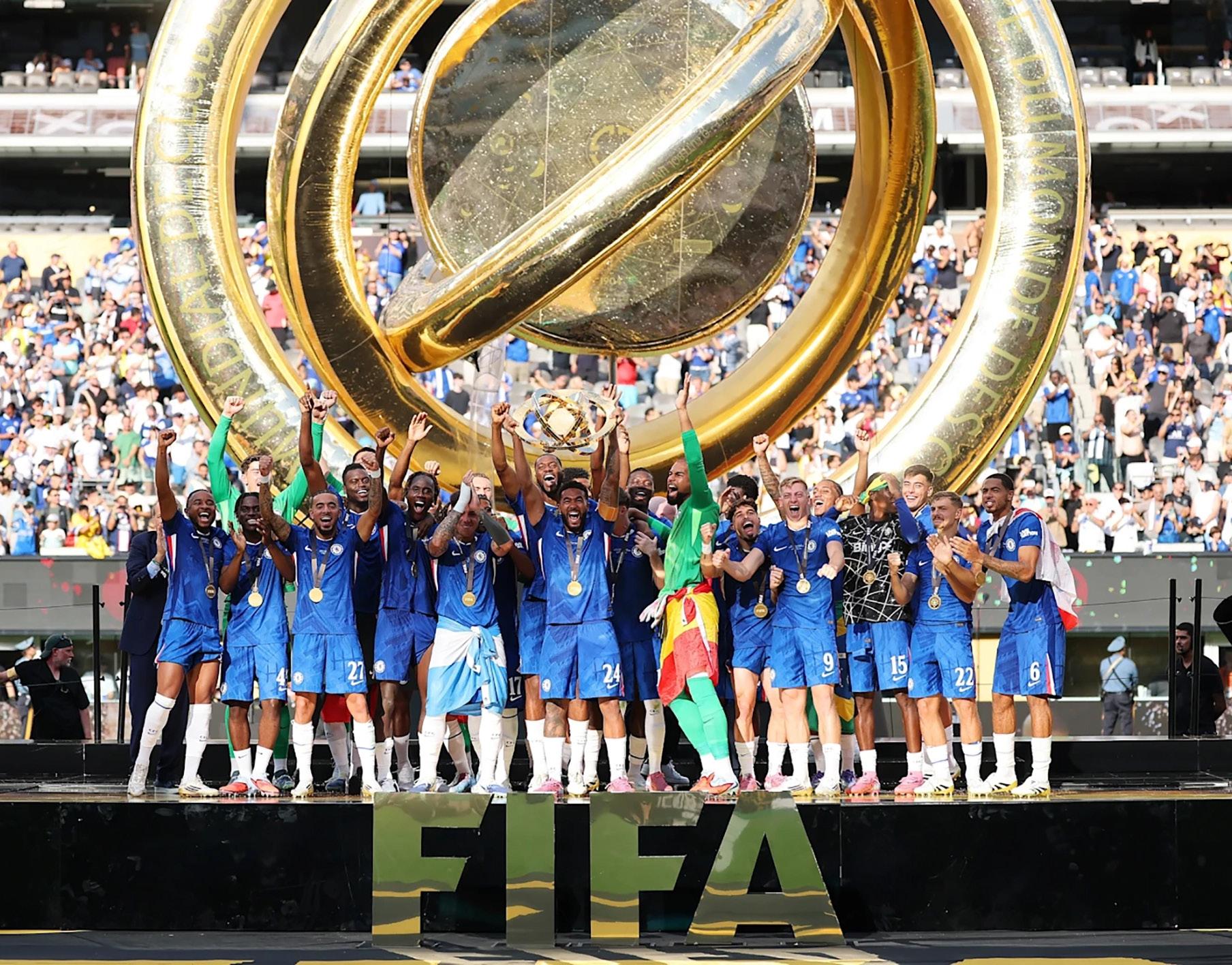
osition being the world’s most-watched sporting event. Hosting with prime-time kickoffs for US audiences will see engagement like no other.”
The expanded Club World Cup was supposed to showcase soccer’s global appeal to US audiences. Instead, it struggled to make a mark. Tickets went unsold, broadcasts were hard to find, and betting numbers were underwhelming.
The tournament did have similar betting patterns to what we would expect from a major tournament. Data provided to Gaming Intelligence by sports betting technology provider Betby showed that pre-match activity accounted for around 70 per cent of bets, but live markets consistently outperformed in terms of turnover, with just 28 per cent of bets on the final generating almost 40 per cent of staking volume.
“The 2026 World Cup is an entirely different proposition, being the world’s most watched sporting event”
Tom Waterhouse, founder of Waterhouse VC
The picture was even clearer across the group stage, where in-play accounted for over half of turnover, despite a smaller share of bets. Market preferences followed familiar patterns, with 1x2 outcomes driving more than a third of all action and totals the next most popular, while BetBuilders captured close to 10 per cent of volume but just 3–5 per cent of turnover, evidence of rising interest without mass adoption.
There are also other important lessons that operators can learn from the Club World Cup for next year’s World Cup.
Pricing challenges stood out the most. With little historical data to go on, traders found fixtures like Manchester City versus Al Hilal uniquely difficult to model. Customers, too, lacked a frame of reference. That uncertainty made both trading and betting riskier than in the highly liquid markets of international football.
Visibility was another issue. Broadcast rights were held by an unfamiliar broadcaster in the US, with no free-to-air exposure and little promotional push. As a result, the tournament barely registered with casual fans. As Mark Phillip, CEO at AreYouWatchingThis and MetaBet put it, “A lot of people here didn’t even know the Club World Cup was going on.”
Finally, the tournament highlighted soccer’s
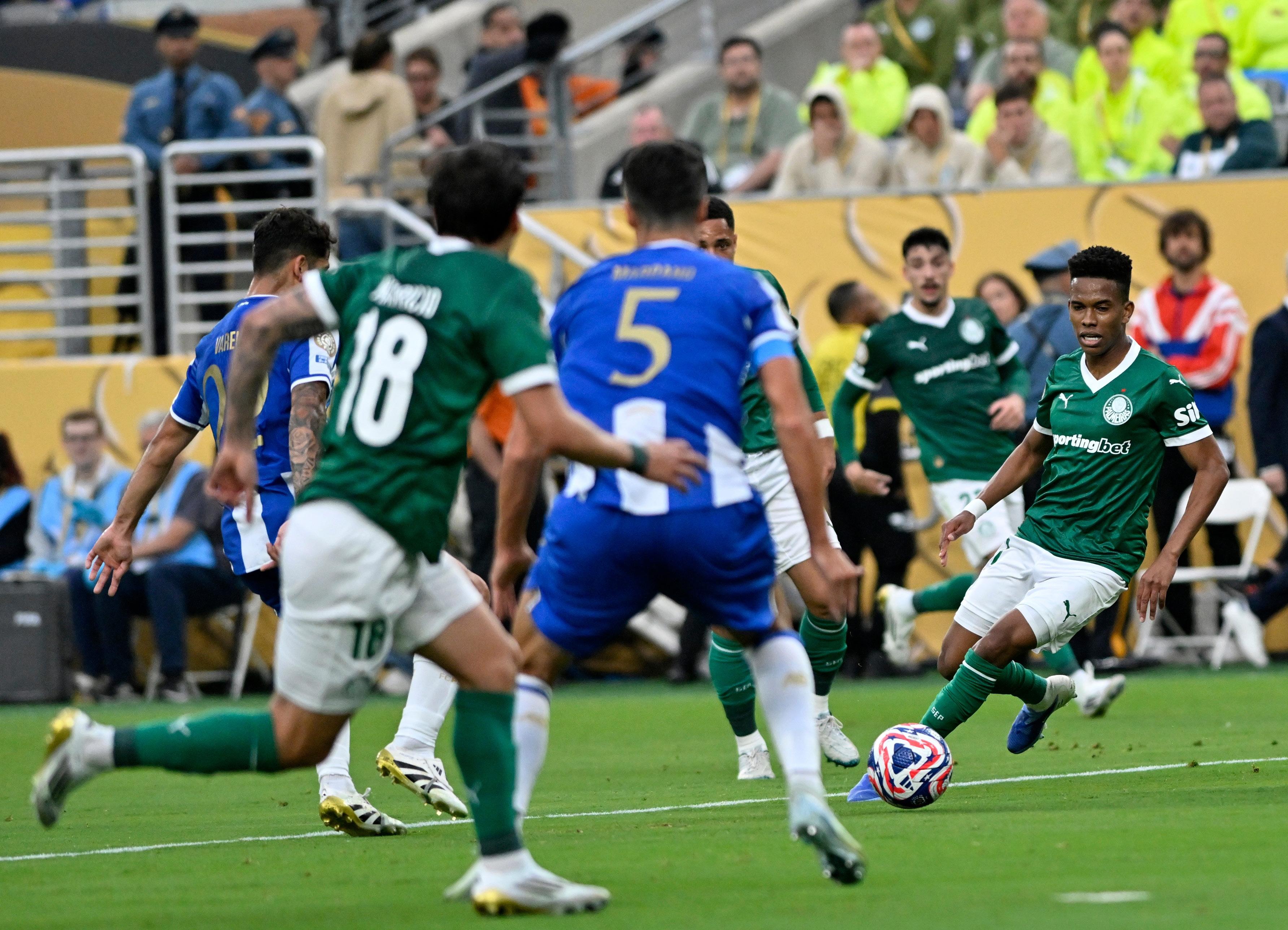
crowded calendar. With Champions League, domestic leagues, the CONCACAF Gold Cup and the emerging Leagues Cup between MLS and Liga MX, American fans were not starved of soccer content. The Club World Cup simply didn’t provide a must-watch hook.
Contrast that with the World Cup: concentrated, prestigious, and involving national teams rather than clubs. As Phillip remarks, “If the World Cup were held on the moon, people would still watch.”
The best place to start when analysing the World Cup is to look into its most prominent host nation, the USA. When the country last hosted the World Cup in 1994, betting was illegal outside Nevada and soccer fandom was embryonic. Yet the tournament set attendance records that stand to this day and laid the foundation for Major League Soccer (MLS).
Fast forward three decades and the landscape is transformed. Sports betting is legal 40 US jurisdictions. Soccer has broken through to the mainstream, powered by a growing Hispanic fanbase, the rise of MLS, and global superstars
like Lionel Messi arriving on American soil.
“Legal sports betting has matured nationwide,” says Waterhouse. “Soccer’s popularity continues its upward trajectory driven by accessibility, a passionate and growing Hispanic fanbase, and expanding media coverage. With a US team capable of reaching the Round of 16, operators should expect engagement levels that eclipse anything soccer betting has delivered.”
The significance of US primetime kick-offs also cannot be overstated. Unlike the last tournament in Qatar, where matches took place early in the morning, every US game in 2026 will be on primetime television. That is the fuel sportsbooks need for watch-and-bet momentum.
If the US is being seen as an opportunity for a new wave of sports bettors, Mexico can be seen as the established field. Soccer is considered the national sports of the country and sports betting is already well-established in the country.
Codere Online chief marketing officer Alberto Telias believes that the Club World Cup showed how hungry the nation is when it comes to sports betting.
“Whenever Monterrey and Pachuca played at the Club World Cup, there was a massive amount of betting activity on our platform, which showed the interest the Mexican consumer had for the tournament. Even when those teams were knocked out, we saw consistent levels of activity in the latter stages of the tournament.”
Telias explains that the Mexican market in general is in a very different place to where it was during the last World Cup. “Four years ago, there were only two or three serious operators. Now that number has more than tripled. That means more content, more advertising, more exposure. Mexicans are dying to have another World Cup in their country.”
“Four years ago, there were only two or three serious operators. Now that number has more than tripled”
Alberto Telias, Codere Online chief marketing officer

If the Club World Cup offered one useful insight, it was how fragmented betting behaviour has become across markets. What works in Mexico doesn’t necessarily resonate in the US, and Canada may sit somewhere in between.
Telias says that bet builders are now the defining trend in Mexico. Customers love combining multiple markets into single wagers, often team result, first goal scorer, and a card market, and treating them as entertainment products in their own right.
“Live betting is also extremely strong,” adds Telias. “Mexicans can bet on a range of sports that is way bigger than anybody else. They watch NCAA, they watch baseball, they watch women’s football. And they do it live.”
By contrast, US bettors are still in the early stages of soccer adoption, and their habits are shaped by US sports, where the action is broken into constant stoppages and plays. That translates into a clear appetite for quick-hit props such as first players booked, a goal to be scored in the first 10 minutes etc. As Phillip explains: “The joy and the pain of your bet is why you bet. The ability to know the result in the next five or 10 minutes is what pulls people in. That’s why we expect first-to-X markets to explode during the 2026 World Cup.”
Phillip adds that this mirrors US betting habits in baseball (“no runs in the first inning”), basketball (“race to 10 points”), and NFL (“first
“The ability to know the result in the next five or 10 minutes is what pulls people in. That’s why we expect first-to-X markets to explode during the 2026 World Cup”
Mark Phillip, CEO of MetaBet
touchdown scorer”). For sportsbooks, the challenge will be to price these markets competitively while managing the higher volatility.
Canada is less developed but may behave as a hybrid between US and European markets. Canadian bettors are already exposed to hockey-style props, which lend themselves to micro-markets, but their soccer engagement has historically followed more traditional patterns.
With Canada hosting matches and the men’s team competing in the 2026 tournament, operators expect increased appetite for both match result bets and player props, goal scorer, assists, and cards, alongside growing interest in bet builders.
The consensus seems to be that all three host countries will lean heavily on bet builders, with Mexico maybe leaning more towards in-play betting and the US more towards micro-betting.

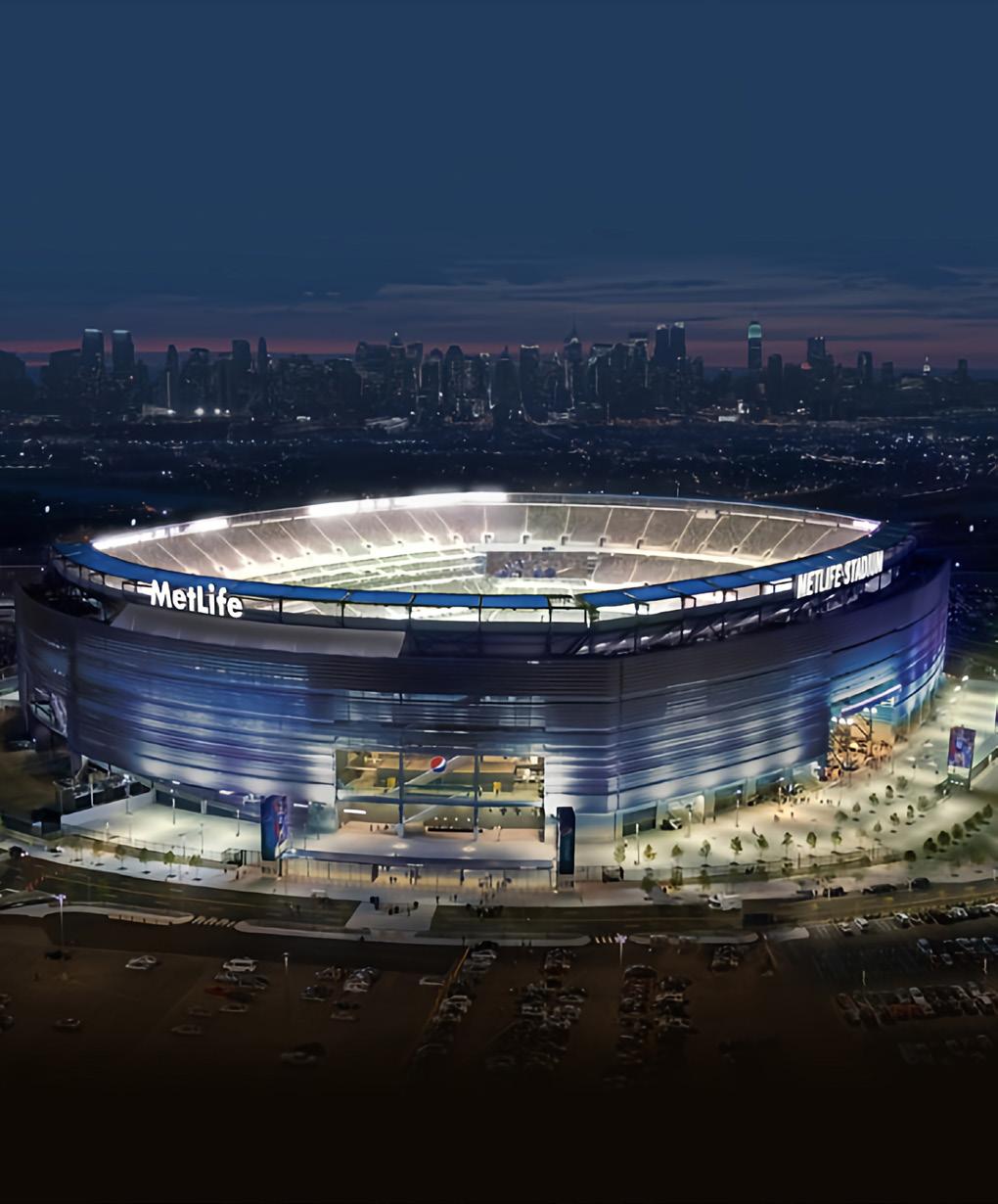
Two operational risks that stand out for next year’s World Cup are the weather and the differing time zones.
There were early warning signs at the Club World Cup. Matches in Texas and Mexico were delayed several hours due to lightning storms, which left bets unsettled and live markets suspended. Similar disruptions are likely next summer, particularly in the southern U.S. and northern Mexico where summer storms are frequent.
Extreme heat is another concern. Afternoon games in Mexico and southern U.S. venues could hit 95–105°F, which will mean FIFA will enforce cooling breaks, slowing tempo and impacting expected-goals models. For bettors, that means more unpredictability in in-play markets; for sportsbooks, it means sharper adjustments to trading algorithms.
While the US will enjoy primetime kickoffs, a dream scenario for domestic sportsbooks, the global picture is less favourable. European bettors will be watching overnight, Asian bettors at dawn. That limits “watchand-bet” activity and shifts handle toward pre-match bets.
Domestically, West Coast games may clash with working hours, dampening in- play betting. For operators, round-the-clock staffing and risk management will be essential to maintain liquidity across time zones.
In short, weather and time zones won’t derail the World Cup, but they will shape how and where bets are placed, and which operators are agile enough to adapt.
Despite the Club World Cup’s struggles, confidence in the 2026 World Cup is sky high. “It has the potential to redefine soccer’s position in the US sports betting market entirely,” Waterhouse concludes.
From Mexico’s fevered fandom to Canada’s emerging market, from US quick-hit bettors to global in-play specialists, the World Cup will test operators’ ability to innovate, differentiate, and engage.
The Club World Cup may have failed to ignite, but that was always likely. The World Cup is different: rarer, bigger, and embedded in sporting culture in a way no other event can match. n










G2E SPECIAL 2025 BRAZIL

In the first half of 2025, Brazil’s regulated online gambling market underwent one of the fastest consolidations seen in any newly opened jurisdiction.
WHAT BEGAN AS a crowded field of hopeful operators has quickly narrowed, with a handful of brands pulling away as clear leaders. Behind them, a fiercely competitive studio ecosystem is shaping which games make it to the top of the homepage — and which disappear within weeks.
The story of the first six months of Brazil’s regulated market is one of operator dominance and studios fighting churn.
Gaming Intelligence has partnered with Product Radars to provide readers with an insight into the rapidly evolving Brazilian iGaming market.
Product Radars’ AI-powered platform tracks Brazil’s regulated iGaming market in real time, giving operators and studios a clear view of how brands and content are really performing.
Beyond the market-wide trends featured here, the company also deliver custom analysis for individual operators and suppliers - helping them spot opportunities, measure their competitive edge, and identify exactly where they need to focus.
Brand performance: Leaders pull away
The headline story is the rise of Betano. In December 2024, Betano held just 13 per cent share of homepage visibility across leading operators. By July, that had risen to 23 per cent — a near-unbroken upward trajectory that has established the brand as the clear market leader.
Superbet, once a close rival, tells the opposite story. Peaking at almost 15 per cent share in February, it has steadily slid back to around 9 per cent by mid-year.
Newcomers have also shaken up the hierarchy. 7Games emerged from almost nowhere to secure a 10 per cent share by July. Betão followed a simi lar trajectory, climbing to around 8 per cent. These two brands now sit firmly among the top challengers, squeezing out weaker preregulation brands.
By contrast, mid-tier con tenders such as EstrelaBet and SportingBet have each lost ground, down two to three share points, while brands like Blaze disappeared entire ly in the transition to regulation.
The overall trend is clear: con centration is increasing. The market share of all brands outside the top 20 halved from 14.6 per cent in Decem ber to just 7.1 per cent by July.
“The story of the first six months of Brazil’s regulated market is one of operator dominance and studios fighting churn”

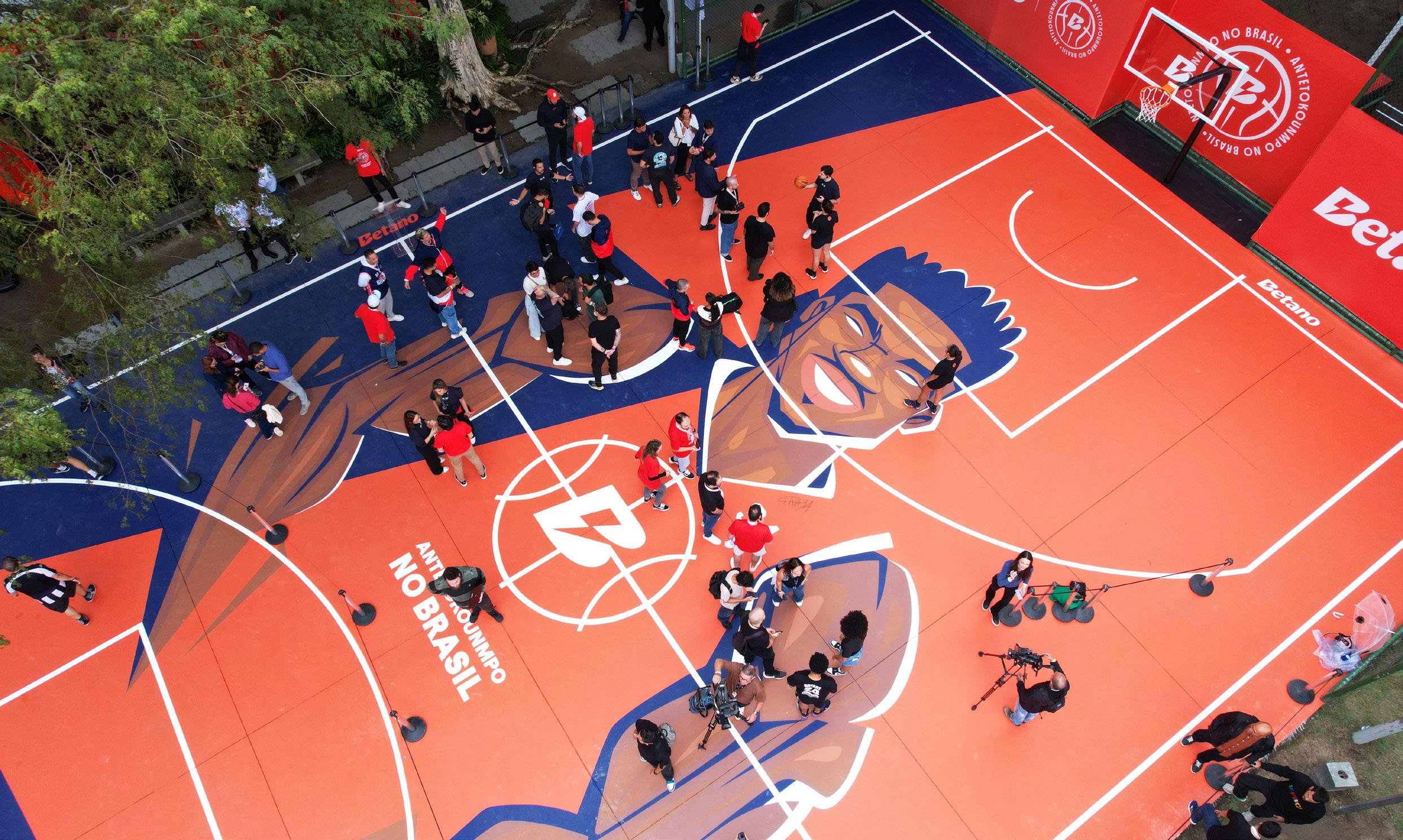
▶ Share (&) of homepage visibility in Brazil: July v January 2025
Share (%) of homepage visibility in Brazil: July v January 2025
One of the strongest correlations in the Brazilian iGaming market is between game launch frequency and operator share.
Betano, Superbet, and bet365 have consistently led the way in new game introductions. Betano in particular accelerated its launch activity between March and May — a period that directly coincides with its sharp rise in share.
This strategy of rapid refresh is not unique to Brazil, but the pace here is notable. Mid-tier operators like Bet7K and Betão maintained disciplined launch schedules of around 35–45 new titles every two weeks, while Cassino Pix ramped up activity in the second half of the

period, perhaps as part of a catch-up strategy.
The lesson appears straightforward: operators that keep their homepages fresh with new titles maintain or grow their market share. Those that fail to do so slip behind.
While constant refresh keeps lobbies dynamic, a handful of must-have titles stay fixed on every homepage. The table shows the Top 10 games from January to July, ranked by the Slot Intel Score – Product Radars’ proprietary metric that blends tile position, featured status, and operator market share.
For content suppliers, the Brazilian market is
even more unforgiving.
Across the reporting period, 1,190 unique games were launched and given at least 30 days to establish a presence. Of these, more than 60% were no longer visible a month later.
In other words, most new games vanish almost as quickly as they appear. Operators rotate titles ruthlessly, and long-term homepage visibility is reserved for proven hits.
The difference between volume-driven and hit-driven strategies is stark. Pragmatic Play launched 118 new titles in six months, yet its overall share of voice declined from 24.9 to 21.1 per cent. Games Global also launched at scale (127 titles) but managed to edge its share upward.

standout single launches. Popok Gaming’s Avi scored the highest impact of any new title, while Push Gaming’s Big Bite delivered outsized results despite modest output.
Legacy strength also plays a role. Spribe launched only one new game during the period yet continued to generate a high total score from its enduring hits Aviator and Mines.
A deeper look at retention reveals which studios can produce lasting content, avoiding that rough 60 per cent drop-off rate.
PG Soft combined a mid-level retention rate with a high hit rate, cementing its position as one of the best performing gaming suppliers in Brazil.
By contrast, Pragmatic and Games Global rely on sheer output: many games, moderate longevity, and a handful of blockbusters to carry the catalogue.
Studios from Playtech have made quiet gains, lifting their share of voice from 1.6 to 3.0 per cent, with franchises like Age of Gods and Mega Fire Blaze underpinning growth. Ruby Play and Greentube also showed breakout potential with new series gaining traction.
Not all growth comes from the big incumbents. The last six months also saw a handful of smaller suppliers break through with outsized results:
Banana Games show how even a small catalogue can stick when the titles are right. With a 100% retention rate across their four launches, a focus on Crash, and a per-game average score above most mid-tier suppliers, Banana are looking at the Spribe approach and how they can follow that. Their challenge now is to broaden distribution and prove whether this stickiness can scale.
Popok Gaming: Scored the highest singlegame impact of the reporting period with Avi, a crash-style title that cut through the noise and delivered a huge Slot Intel Score from launch. It underlines how one standout hit can propel a studio into visibility, even in a crowded market. These examples show that breakout success is still possible in Brazil’s crowded ecosystem. Whether through a consistently sticky catalogue or a single lightning-strike hit, smaller studios can still carve out space alongside the giants.
Betano has emerged as the preferred partner for early access in Brazil, with 13 studios — including Wizard Games, Gaming Corps, Atomic Slot Lab and PG Soft — launching the majority of their titles first on the brand.
bet365 plays a similar role for tier-one suppliers such as Playtech, Relax Gaming, and Evolution, while Superbet has forged closer ties with smaller studios like Wazdan, B Gaming and Endorphina.
Interestingly, the largest suppliers — Games Global and Pragmatic Play — show broad distribution across the market, rather than favouring one operator.
Exclusivity deals between Brazil’s largest operators and tier-one suppliers typically last around a month. Our analysis shows Betano, bet365 and Superbet all average exclusivity periods of 30–50 days for new launches from studios like PG Soft, Pragmatic Play, Playtech and Evolution.
Pragmatic’s exclusives are often shorter,

spreading in under a month, while PG Soft titles sit closer to the 30-day benchmark. Exceptions exist — bet365’s Evolution titles can remain exclusive for nearly two months — but overall, the market’s de facto standard is a month-long exclusivity window.
During the first six months after regulation in Brazil, a handful of operators have surged ahead, with Betano in particular establishing itself as the dominant force in the market.
For studios, the competition is even more brutal. High launch volumes are no guarantee of success, and only those producing genuine hits are able to hold homepage visibility. Early-launch partnerships with leading brands add another layer of advantage for those able to secure them.
The message from Brazil is clear: distribution power and disciplined content strategy matter as much as brand strength. Operators that refresh relentlessly and studios that deliver sticky hits will thrive. The rest risk being rotated out, just like the majority of games that failed to survive their first month. ■







MGM Resorts set for new COO
MGM RESORTS’ LONG-SERVING chief operating officer (COO), Corey Sanders, is retiring at the end of this year after more than 30 years’ service.
Sanders oversees the company’s Las Vegas and regional properties, as well as multiple corporate departments, and will remain as COO through December 31. He will serve as an advisor to MGM Resorts president and CEO Bill Hornbuckle through to the end of 2026.
“It’s impossible to overstate what Corey has meant to this company over the last 30-plus years,” said Hornbuckle. “He has been a constant presence, providing foundational leadership for all the key moments that have defined our history – from our acquisitions of Mirage Group and Mandalay Resort Group to our regional property openings and expansions like Springfield, National Harbor, Empire City and Borgata.
“More importantly, Corey helped us put all the different pieces together to create one company and one culture. As a leader and as a person, Corey understood the importance of caring for employees and treating people with respect. He will be deeply missed.”

Aristocrat Interactive has named Dylan Slaney, former CEO of iGaming at Light & Wonder, as its next chief executive officer.
Rush Street Interactive brings in new tech chief
RUSH STREET INTERACTIVE (RSI) has appointed Shubham Tyagi as its new chief technology officer.
Tyagi joins the online betting and gaming operator from Warner Bros, Discovery (WBD) – Sports, where he transformed WBD’s global sports digital portfolio, including Bleacher Report, NBA Digital, NCAA March Madness Live, TNT Sports (Latin America & Europe), Eurosport and the Olympics.
“As RSI continues to innovate and strengthen our technology capabilities, we sought a leader with exceptional technical depth, global experience, and a people-first leadership style,” said RSI CEO Richard Schwartz. “Shubham stood out not only for his experience and expertise, but also for his ability to build trust, drive alignment, and scale platforms that serve millions of customers around the world. We’re thrilled to welcome him to RSI.”
“I want to express my thanks to Moti for his leadership through a period in which we brought together multiple teams to create Aristocrat Interactive, put in place an ambitious group growth plan and took foundation steps towards its delivery”
Trevor Croker, Aristocrat
CEO
IGAMING ONTARIO APPOINTED Joseph Hillier as the new president and CEO of the provincial iGaming regulator, taking over from David Smith, who has been serving as interim chief since Martha Otton’s retirement.
Slaney is a two-time Gaming Intelligence Hot 50 honouree and will assume leadership of Aristocrat Interactive in November to succeed Moti Malul, who has led the business since the April 2024 acquisition of NeoGames by Aristocrat Leisure. Malul was previously CEO of NeoGames, having been with the company since 2008 when it was just an online scratchcard provider. He has also been recognised twice in the Gaming Intelligence Hot 50 for his achievements at NeoGames and Aristocrat Interactive, and will step away from the business next March.
Allwyn North America CEO heads to Australia

Hillier most recently served as chief strategy officer and corporate secretary at the Alcohol and Gaming Commission of Ontario (AGCO), and prior to that served as chief of staff to Ontario Attorney General Hon. Doug Downey and led the development, launch and implementation of Canada’s first private sector-driven iGaming market and the creation of iGaming Ontario.


“The Board of Directors looks forward to supporting Joseph as he leads iGaming Ontario to build on Ontario’s iGaming market success and deliver on key priorities including an anti-money laundering system for operators, and a centralized self-exclusion platform for Ontarians,” said iGaming Ontario’s Board of Directors.
“I want to express my thanks to Moti for his leadership through a period in which we brought together multiple teams to create Aristocrat Interactive, put in place an ambitious group growth plan and took foundational steps towards its delivery,” said Aristocrat Group CEO Trevor Croker. “Dylan’s deep iGaming experience and track record of operational delivery will help us accelerate momentum in Aristocrat Interactive, including building on our market-leading position in iLottery, in line with our strategy.”
ALLWYN NORTH AMERICA CEO Wayne Pickup is heading Down Under after being named as the next managing director and CEO of The Lottery Corporation (TLC) in Australia.

Pickup has served as CEO of Allwyn North America since March 2018 but is stepping down in November to move to the Australian lottery operator’s Brisbane office. He succeeds Sue van der Merwe, who announced her retirement in March after a 35-year career in lotteries, including three years leading TLC.
“Wayne is a proven leader with a strong track record and a deep understanding of lotteries developed over many years in the industry,” said TLC chairman Doug McTaggart.

Gambling.com and Golden Matrix come out on top of the GIQ30 chart… but Flutter Entertainment takes the plaudits as the biggest publicly-listed company by gaming revenue
American edition of the GIQ30 ranks the biggest publicly listed companies in the betting, gaming and lottery sectors by revenue growth during the first half of 2025.
The GIQ30 chart comprises operators and suppliers that are listed on the New York or Toronto stock markets, alongside other publicly-listed companies with a notable presence in the United States and Canada.
In the first half of 2025, there were two contrasting businesses leading the GIQ30 - digital marketing specialist Gambling.com and Golden Matrix, an online raffle ticket operator that recently acquired European betting operator Meridianbet. Both achieved impressive revenue growth of 34 per cent in H1 2025, placing them ahead of DraftKings and Super Group, which both grew revenue by a healthy 28 per cent. Ainsworth Game Technology made up the top five with a 25 per cent improvement in revenue.
MGM Resorts just missed out making the GIQ30 chart as first half revenue fell marginally by 0.3 per cent, but it remains the biggest publicly-listed gaming company with overall revenue of $8.68 billion. MGM Resorts’ gaming revenue rose 4 per cent to “just” $4.58 billion, meaning that, in pure gaming terms, Flutter Entertainment was the biggest company in H1 2025 with revenue of $7.85 billion, including a whopping $3.46 billion from the US alone.
from casino increase 15 per cent to $48.3million, while sports revenue grew 74 per cent to $30.6 million and other revenue soared 387 per cent to $1.3 million. Gambling.com is also poised to expand its operations after agreeing a deal to acquire Las Vegas-focussed booking platform Spotlight.Vegas for an initial $8 million.
“The addition of this custom-built booking platform will help drive further monetization of our audience, expands our client base to include land-based operators and gives our digital professionals a new platform to show off their industry leading marketing talent,” said chief executive and co-founder Charles Gillespie. “We are confident that we can better
operate this asset through optimized marketing spend and improved conversion. Medium and long term, we expect to deploy the technology on our owned and operated sites like Casinos.com and take it beyond Las Vegas.”

New York-listed Golden Matrix posted strong growth for the first half period as revenue increased by 34 per cent to $86.0 million, despite growth slowing in the second quarter due to customer-friendly sports outcomes. The bulk of the total was generated by MeridianBet, which contributed H1 revenue of $56.9 million, while GMAG contributed $7.5 million, derived from the company’s intellectual property and the resale of third-party gaming content, primarily in the Asia-Pacific region. Pay-to-enter prize competitions and trade promotions, conducted through RKings in the United Kingdom and Classics for a Cause in Australia, accounted for a further $21.6 million in revenue.
“Our second quarter was a challenging quarter,” said chief executive Brian Goodman. “Due to customer-friendly sports outcomes within our European business, our second quarter revenue grew 10 per cent year-over-year. Adjusting for this, we remain on track for our full-year revenue guidance and are confident in the strength of our business and the opportunities ahead.”
million, and 36.5 per cent growth in other revenue to $188.4 million. The full year guidance includes anticipated financial impacts from the launch of mobile sports betting in Missouri later this year, after DraftKings became one of two operators to secure an untethered mobile sports betting license, alongside Circa.
“We set records for revenue, net income and adjusted EBITDA in the second quarter, driven by an acceleration in revenue growth to 37 per cent year-over-year,” said chief executive and co-founder Jason Robins. “We are pleased to be maintaining our fiscal year 2025 guidance, with revenue expected to be closer to the high end of our range, highlighting the strength of our platform as we prepare for an exciting new state launch.”
cess was fuelled by strong execution across our key markets, a full calendar of global sporting events, increased deposits, high customer retention, and margin expansion. While our decision to exit the US was difficult, we believe that this step demonstrates our commitment to capital efficiency and long-term profitability. With continued focus on scaling our technology globally, Super Group should be even better positioned for sustained, profitable growth.”
New York-listed DraftKings remains on track to deliver full year revenue of between $6.2 billion and $6.4 billion in 2025, as a record second quarter helped first half revenue grow 28 per cent to $2.9 billion. This comprised a 32 per cent increase in sportsbook revenue to $1.88 billion, an 18 per cent rise in iGaming revenue to $853.1
New York-listed Super Group also benefited from a record second quarter, which helped first half revenue increase 28 per cent to $1.1 billion, of which Betway contributed $673 million (+33 per cent) and Spin $423 million (+20 per cent). Revenue from North America rose 21 per cent to $380 million despite Betway shutting down its online sportsbooks in the US last year, and the company set to completely exit the market with the closure of its iGaming operations.
“We had a super first half of 2025, driven by a record-breaking second quarter,” said chief executive Neal Menashe. “The quarter’s suc-
Sydney-listed Ainsworth Game Technology reported a 25 per cent increase in first half revenue to A$152.1 million, buoyed by strong growth in North America, which saw revenue grow 22 per cent to $83.1 million. Revenue from the Latin American and Europe segment fell by 16 per cent to $31.6 million, while the Asia Pacific region (Australia, New Zealand, and Asia) recorded the biggest growth as revenue increased by 81 per cent to $34.6 million.
“We continue to execute on established strategies and capitalise on opportunities that emerge,” said chief executive Harald Neumann. “The investments have enabled us to upgrade our technology, hardware and continue to improve game performance which are expected to ensure we maintain our position in a highly competitive and consolidating market.”

Toronto-listed NorthStar Gaming recorded a 23 per cent increase in revenue to CA$16.4 million for the first half of 2025. Gaming revenue from Northstarbets’ online sports betting and casino offering in Ontario rose 19 per cent to $15.3 million, while revenue from managed services soared 119 per cent to $1.1 million, comprising results from Northstarbets.com outside of Ontario, which is operated by the Abenaki Council of Wolinak.
“Our team maintained our pattern of solid year-over-year growth, led by managed services revenue more than doubling over the second quarter of last year,” said chair and chief executive Michael Moskowitz. “Operating leverage driven by continued growth of the business has led to gross margin continuing to outpace revenue growth, with Q2 2025 gross margin percentage reaching an all-time high of 40.8 per cent, advancing our path to profitability. Ongoing innovation and efficiency in our marketing program is enabling us to drive growth while at the same time reducing operating expenses as a percentage of revenue.”
New York-listed Rush Street Interactive (RSI) saw first half revenue surpass $500 million for the first time as revenue rose 21 per cent to $531.6 million, driven by record second quarter performance. Monthly active users (MAU) in the US and Canada increased by 21 per cent to 197,000 in Q2, and average revenue per MAU in the region climbed 2 per cent to a new quarterly high of $391.
“I’m excited to report that we’ve delivered another exceptional quarter with records across the board, marking our 9th consecutive quarter of improving both revenue and adjusted EBITDA from the preceding quarter,” said chief executive Richard Schwartz. “The consistency and strength of our business model is evident in our results, particularly in North American markets that include online casino, where we saw monthly active user growth exceeding 30 per cent. Our strategic focus on markets where we can deploy our full suite of gaming offerings continues to drive exceptional performance and maximize player value.”
GeniusIQ technology.
London-listed Gaming Realms expects revenue for the first half of the year to be 18 per cent higher than the same period last year at £16.0 million, reflecting continued growth in its licensing business and ongoing international expansion. The supplier launched six new Slingo games during the period and added 19 new distribution partners, with the company expecting to continue its strong development during the remainder of the year.
“We are delighted with our strong performance in the first half of 2025,” said chief executive Mark Segal. “The continued growth in our core licensing business and the successful execution of our expansion strategy have delivered excellent results. We look forward to building on this momentum in the second half of this year.”
Genius Sports raised its full year revenue guidance for 2025 after seeing first half revenue increase by 22 per cent to $262.7 million, driven by a 38 per cent in revenue from the Betting Technology, Content & Services segment to $194.1 million. This helped to offset a 17 per cent fall in revenue from Media Technology, Content & Services to $44.5 million. Sports Technology & Services revenue rose 17 per cent to $24.2 million, following an increase in sales of products built on
“Our new partnerships with Serie A and European Leagues further demonstrate the strength of our technology and how it is fundamentally transforming the traditional rights model,” said co-founder and chief executive Mark Locke. “Additionally, our extended and expanded partnership with the NFL reinforces our confidence in the longterm model, paving the way for continued margin expansion and cash flow growth for the foreseeable future. The strong momentum and new commercial successes across Betting, Media and Sports underpin our increased full-year 2025 guidance.”
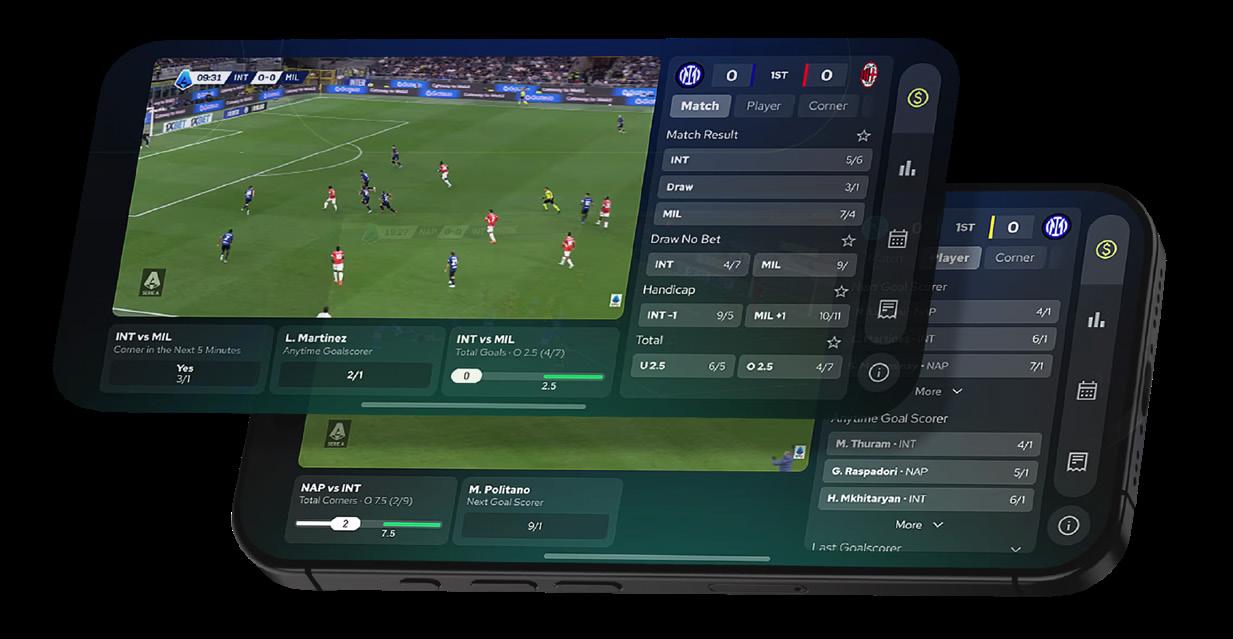
A record second quarter performance led New York-listed Sportradar to raise its full year revenue guidance for 2025 to €1.28 billion, representing growth of at least 16 per cent. First half revenue increased by 16 per cent to €629.0 million, of which €174.1 million was generated in the US, up 31 per cent year-on-year. The company’s Betting Technology & Solutions segment grew revenue by 13 per cent to €508.8 million, while revenue from Sports Content, Technology & Services rose 27 per cent to €120.2 million.
“Our second quarter results, including record quarterly revenue, expanding operating margins and significant cash flow reflect our sustained operating momentum and execution against our growth strategy,” said chief executive Carsten Koerl. “Looking

ahead, given our momentum we are raising our full year expectations and anticipate the acquisition of IMG ARENA will further expand our capabilities, creating even greater value for our clients, partners and shareholders.”
with City of Dreams Macau and Studio City setting new records in mass market table games revenue,” said chairman and CEO Lawrence Ho. “This was further supported by increases in cost efficiencies leading to stronger margins. We are confident that the strategic initiatives we implemented have set us up on a solid foundation for continued growth.”
New York-listed Melco Resorts & Entertainment reported a 15 per cent increase in revenue to $1.33 billion for the second quarter, helping first half revenue surpass $2.56 billion. The Q2 growth was driven by a 23 per cent increase in revenue from its flagship City of Dreams Macau venue to $710.5 million, while Studio City Macau revenue rose 10 per cent to $388.2million. Across all segments, casino revenue in the half-year period grew by 14 per cent to $2.12 billion, while Rooms revenue rose 6 per cent to $214.1 million.
“Gaming volumes and revenue increased,
Boosted by strong second quarter growth of 16 per cent, New York-listed Flutter Entertainment posted a 12 per cent increase in first revenue to $7.85 billion. Nearly half of the total was generated in the US as revenue grew 18 per cent to $3.46 billion, including sportsbook growth of 13 per cent to $2.35 billion and a 37 per cent rise in iGaming revenue to $979 million. Flutter’s
“I am pleased with the excellent underlying performance we have delivered in the second quarter alongside the good progress made on a number of key strategic initiatives”
Flutter Entertainment CEO Peter Jackson

International division also performed well, with H1 revenue up 8 per cent to $4.4 billion, as sportsbook revenue climbed 1 per cent to $1.92 billion and iGaming rose 16 per cent to $2.32 billion.
“I am pleased with the excellent underlying performance we have delivered in the second quarter alongside the good progress made on a number of key strategic initiatives,” said chief executive Peter Jackson. “Revenue grew by 16 per cent year-on-year, as we continue to build scale positions in the most attractive markets through strong organic growth and value creating M&A. Since Q1, Flutter gained additional US index inclusion and accelerated ownership of FanDuel to 100 per cent. We also became the largest operator in Italy with the addition of Snai; established a scale position in Brazil through NSX; and successfully executed two transformative customer migrations. Such varied achievements in one quarter are a great reflection of our teams’ focus and ability to execute effectively, leaving us well positioned for the second half of the year.”
Toronto-listed Pollard Banknote reported a 10 per cent increase in first half revenue to CA$288.9 million for the, with charitable gaming revenue accounting for nearly a quarter of the total. Higher instant ticket average selling prices increased revenue by $21.5 million, while higher charitable gaming volumes increased revenue by $11.2 million. This offset lower Michigan iLottery sales, which negatively impacted revenue by $2.5 million. The supplier was also boosted by its share of the NeoPollard Interactive joint venture with Aristocrat Interactive, which generated record profits of $19.5 million, up 20 per cent including the Michigan iLottery contract.
“The second quarter of 2025 was a very important one for Pollard Banknote as we continued our focus on investing for long-term growth,” said co-chief executive John Pollard. “We are very excited about the opportunities in all areas of our business including instant tickets, eInstants, iLottery and charitable gaming including electronic eTabs. In particular we are confident that our third quarter will benefit from higher volumes of instant tickets and continued strength in our other business lines.”

Sydney-listed Aristocrat Leisure reported a 9 per cent increase in revenue to A$3.03 billion for its fiscal first half ended 31 March 2025, as Interactive revenue soared 141 per cent to $263.6 million following the inclusion of NeoGames’ results. Revenue from Aristocrat Gaming climbed 2 per cent to $1.87 billion as growth in North America offset a decline in Rest of World revenue, while Product Mad ness revenue was up 5 per cent at $901 million.
“This was a positive result, illustrating the quality of Aristocrat’s portfolio and ability to grow through different operating environments while also investing for the future,” said chief executive and managing director Trevor Croker. “Looking ahead, we continue to see strong momentum in our business as we align our portfolio to capture the significant strategic opportunities in front of us. We expect an acceleration in operating

New York-listed Accel Entertainment delivered another record quarter as revenue increased by 9 per cent to $335.9 million, taking the total for the half-year up to $659.8 million. The Q2 performance was driven by continued growth in its core market of Illinois, as revenue climbed 8 per cent to $245.4 million, boosted by newly acquired Fairmount Park. Accel also recorded growth in Nebraska and Georgia of 26 per cent 53 per cent respectively, while Louisiana contributed $9.6 million following the acquisition of Toucan Gaming, helping to offset declines in Montana and Nevada.
“Our record second quarter results demonstrate continued progress and consistent execution with year-over-year revenue and adjusted EBITDA growth in all of our core and developing markets,” said chief executive Andy Rubenstein. “Our results reflect the benefits of our disciplined expansion strategy and our successful improvement of the operating results in new and acquired locations.”


like Brazil, The Netherlands, and Romania, we’re prioritizing improved margin and cash flow performance over aggressive revenue expansion. That said, we believe that there are substantial, highly accretive growth opportunities ahead for this business. We intend to pursue these opportunities methodically, with a focus on both margins and cash flow.” CHURCHILL DOWN INCORPORATED ($MN)
Toronto and New York-listed Bragg Gaming is prioritizing improved margin and cash flow performance over aggressive revenue expansion, after seeing revenue growth slow to 6 per cent to €51.6 million in H1 2025. Buoyed by growth in the US and Latin America, proprietary content revenue increased by 44 per cent year-on-year, and accounted for 15 per cent of Q2’s total revenue of €26.1 million.
“While our top-line growth may appear modest, I want to be clear about our strategic focus,” said chief executive Matevž Mazij. “With increasing gaming taxes being implemented in key markets
New York-listed Churchill Downs Incorporated saw revenue surpass $1.57 billion in the first half of 2025, and was another company to be boosted by a record second quarter. Revenue in the quarter grew 5 per cent to a new high of $934.4 million, as revenue from the Live and Historical Racing segment increased by 10 per cent to $540.9 million, and Wagering Services and Solutions revenue climbed 5 per cent to $168.4 million to offset a 3 per cent drop in Gaming revenue to $266.3 million.


New York-listed Las Vegas Sands generated more than $6 billion in revenue in the first half period, of which $3.51 billion was derived from Macau (-2 per cent) and $2.55 billion from Singapore’s Marina Bay Sands (+17 per cent). Casino represented more than three-quarters of the total as H1 revenue surpassed $4.5 billion, while Rooms revenue climbed 4 per cent to $669 million.
“Our financial strength and industryleading cash flow continue to support our investment and capital expenditure programs in both Macao and Singapore, our pursuit of growth opportunities in new markets and our program to return excess capital to stockholders,” said chairman and chief executive Robert Goldstein.
“American Place continued its strong ramp in operations delivering record net revenue and operating profit in the second quarter”
Full House Resorts CEO Daniel Lee
Farahi. “Our focus on technology and operational efficiencies drove an operating margin increase of approximately 320 basis points over the prior year period to a second quarter adjusted EBITDA margin of 37.5 per cent.”
New York-listed Boyd Gaming topped $2 billion in revenue during the first half of 2025 as revenue grew 5 per cent year-on-year. Second quarter revenue rose 7 per cent to $1.03 billion, driven by a return to growth from the Las Vegas Locals segment for the first time in more than two years. This offset a revenue decline from Downtown Las Vegas, while Midwest & South revenue continued to grow and Online posted the strongest growth, as Q2 revenue increased by 33 per cent to $173.1 million.
“Looking ahead, the recently announced transaction to sell our equity stake in FanDuel will further strengthen the company’s financial position as we continue to invest in our properties, pursue growth opportunities, return capital to shareholders and maintain a strong balance sheet – a strategy that continues to drive long-term shareholder value,” said president and CEO Keith Smith.
New York-listed Red Rock Resorts surpassed $1 billion in revenue during the first half of 2025, as casino revenue from its Station Casinos venues across Nevada rose 6.5 per cent to $678 million. Food and beverage revenue fell by 1 per cent to $183.6 million and Room revenue was 2 per cent lower at $101.4 million. Other revenue rose 1 per cent to $51.1 million, and developments fees were $10 million.
New York-listed Monarch Casino & Resort reported a 7 per cent increase in revenue to a record $136.9 million for the second quarter, driving a 5 per cent rise in first half revenue to $262.3 million. Casino revenue from its two venues in Colorado and Nevada grew 9 per cent to $152.5 million, while food and beverage revenue fell 16 per cent to $52.2 million.
“Monarch delivered record second quarter financial results,” said chief executive John
New York-listed Full House Resorts posted a 4 per cent rise in first half revenue to $149 million, most of which was derived from the Midwest & South segment, which grew revenue by 4.5 per cent to $115 million. Revenue from the West segment rose 8 per cent to $30.1 million, while contracted sports wagering revenue declined to $3.9 million.
“American Place continued its strong ramp in operations, delivering record net revenue and operating profit in the second quarter,” said chief executive Daniel Lee. “This strong performance reflects the growing awareness and popularity of American Place throughout Chicago’s populous northern suburbs.”

New York-listed Gaming and Leisure Properties reported a 4 per cent increase in first half revenue to $790.1 million, driven by another record quarter of revenue in Q2 2025. The solid second quarter results reflect the company’s recent acquisitions and financing arrangements, contractual escalators and percentage rent adjustments, and growing base of leading regional gaming operator tenants, which includes 68 premier gaming assets across 20 US states.
“These factors contribute to the ongoing predictability of our rental cash flows and dividends, and are expected to drive continued financial growth in the second half of 2025,” said chairman and chief executive Peter Carlino. “With our pipeline of announced growth opportunities, disciplined approach to portfolio expansion, the proven long-term resiliency of our tenants’ revenue streams, and comfortable rent coverage ratios, we expect to continue to deliver strong capital returns and yields for our shareholders.”
“During the second quarter, we initiated a partnership with Red Rock Resorts related to the development of the North Fork Mono Casino & Resort near Madera, California, and we expanded our investment with Cain International and Eldridge Industries related to the development of One Beverly Hills.”
New York-listed VICI Properties was another real estate investment trust to make the GIQ30 as first half revenue increased by 4 per cent to edge past $1.98 billion, surpassing $1.0 billion in quarterly revenue for the first time during Q2 2025.
“The strength of our internal growth from contractual rent escalations coupled with investment activity across new and existing partnerships continues to support our earnings growth,” said chief executive Edward Pitoniak.
Stockholm-listed Evolution reported a 3.5 per cent increase in revenue to more than €1.04 billion in the first six months of 2025, as North America contributed €145.5 million, equivalent to 14 per cent of the total. Live casino games generated the bulk of the half-year total as revenue grew 4 per cent to €902.4 million, while revenue from RNG games climbed 2 per cent to €142.9 million.
“North America maintains very good momentum, and we continue to expand our offerings as well as our US studio network with the planning of a new studio in Grand Rapids, Michigan,” said chief executive Martin Carlesund.

executive Stella David. “Entain’s transformation journey is well underway, gathering pace and is supported by our high-quality portfolio of iconic brands with podium positions in attractive markets. Our business is getting stronger, fitter and faster, with these results reinforcing our confidence in driving sustainable underlying growth and generating more than £0.5bn of cash annually in the medium term.”
London-listed Entain reported a 3 per cent improvement in revenue to £2.63 billion in H1 2025, as UK and Ireland revenue increased by 9 per cent to £1.09 billion. Central and Eastern Europe revenue grew 5 per cent to £253.8 million, offsetting a 2 per cent fall in International revenue to £1.29 billion. The company’s BetMGM joint venture with MGM Resorts also performed strongly in H1, and now expects to deliver full year revenue of at least $2.7 billion.
“I am delighted by the ongoing momentum and strong performance that both Entain and BetMGM have delivered in H1 2025,” said chief
New York-listed Inspired Entertainment grew first half revenue by 4 per cent to $140.7 million, driven by a 47 per cent increase in Interactive revenue to $25.7 million. Gaming segment revenue decreased by 1 per cent to $48.9 million in H1, and Virtual Sports revenue declined 26 per cent to $17.9 million, while Leisure revenue rose 5 per cent to $48.2 million.
“North America maintains very good momentum, and we continue to expand our offerings as well as our US studio network with the planning of a new studio in Grand Rapids, Michigan”
Evolution CEO Martin Carlesund


“Across the business, we continue to execute with discipline and focus,” said executive chairman Lorne Weil. “Our Interactive segment is scaling efficiently, Gaming is delivering profitable growth, Virtual Sports is showing early signs of renewed momentum, and Leisure is performing steadily. With a more flexible capital structure in place and a clear set of strategic priorities, we believe we are well-positioned to build on this progress and drive long-term value for our shareholders.”
MGM Resorts narrowly missed out on making the GIQ30 as revenue fell by 0.3 per cent to $8.68 billion in the first half of 2025, despite a 2 per cent improvement in the second quarter taking the company to its highest ever quarterly total of $4.4 billion.
Revenue from Century Casinos was only down marginally by 0.4 per cent at $281.3 million after also returning to growth in the second quarter. This was not enough to stop the company from initiating a strategic review process to enhance shareholder value, which includes a potential sale of part or all of the business.
DoubleDown Interactive’s first half revenue decreased by 4.5 per cent to $176.4 million, despite growing contributions from its SuprNation iGaming business in Europe, while Brightstar Lottery (formerly International Game Technology) began a new era as a fully focussed lottery provider
with a 5 per cent fall in revenue to $1.21 billion, partly attributed to higher US multi-state jackpot activity in the prior year period.
Golden Entertainment’s first half revenue fell by the same percentage to $324.5 million, with non-gaming operations generating more than half the total, while revenue from Bally’s Corporation slid 6 per cent to $1.27 billion following a 3 per cent decline in its land-based casino and resorts business. Intralot is in the process of acquiring Bally’s International Interactive business for
€2.7 billion, which will see Bally’s become the majority shareholder of Intralot Revenue from Kambi Group declined by 8 per cent to €81.9 million as second quarter revenue fell 11.5 per cent due to the uplift of EURO 2024 and Copa America in the prior year period. Better Collective’s revenue was 15 per cent lower at €164.1 million as North America revenue fell by 30 per cent, while revenue from Catena Media fell by 33 per cent to €19.4 million as North American revenue declined by 32 per cent.
Athens-listed Intralot posted a 2 per cent increase in revenue to €168.0 million for the first half period, most of which was derived from B2B technology contracts, primarily driven by an improved performance in the US. While lottery accounted for more than half of the H1 total, this will change following Intralot’s transformational acquisition of Bally’s International Interactive business later this year.
“Intralot’s results for the first half of 2025 reflect stable financial performance in terms of revenue and operating profitability, strengthened cash flows, and a significant reduction in debt and leverage,” said chairman Sokratis Kokkalis.
Kuala Lumpur-listed Genting Malaysia recorded a 1 per cent increase in revenue to RM5.51 billion (approx. $1.3 billion) for the first half of 2025, with the US and Bahamas segment contributing nearly a fifth of the total.
This was partly driven by the consolidation of Empire Resorts from June, coupled with higher volume of business from the group’s non-New York operations.
The company also announced a deal to sell the non-gaming assets of Empire Resorts to Sullivan County Resort Facilities Local Development Corporation for $525 million.
New York-listed Light & Wonder sneaked into the GIQ30 after posting a marginal increase in revenue to $1.58 billion for H1 2025. The company won’t be listed in New York for much longer, however, after confirming plans to delist from Nasdaq by the end of November and maintain a sole primary listing on Sydney’s ASX market.
“Following an extensive diligence process, I am excited to announce the Board’s decision to transition to a sole ASX listing, which I believe will deliver tremendous shareholder value going forward,” said chief executive Matt Wilson. “I have confidence in our strategy as we continue to execute to our long-term blueprint, which will drive quality of earnings.”

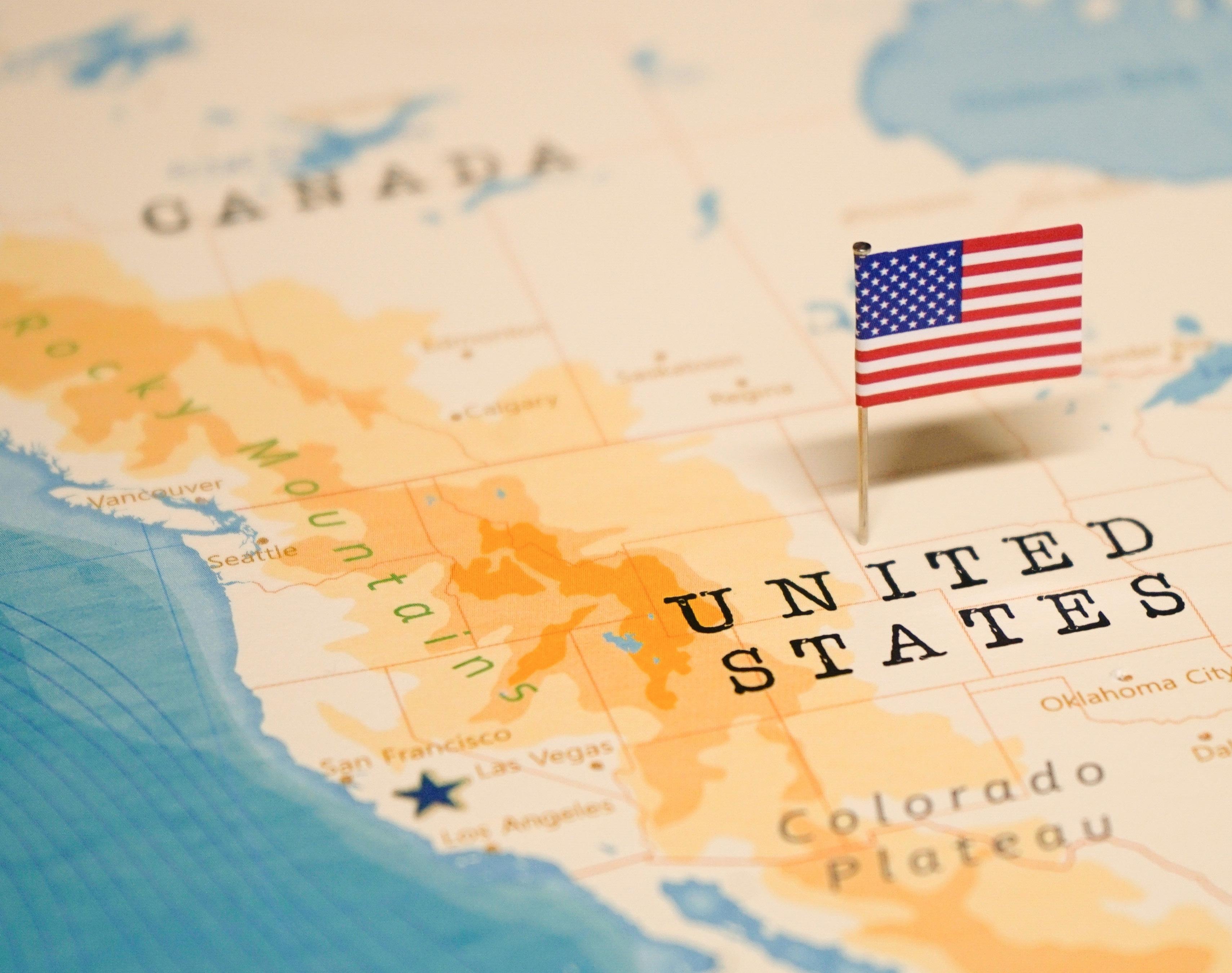
California, Louisiana and New Jersey among states combating sweepstake casinos
MULTIPLE STATES INCLUDING California, Louisiana and New Jersey have taken action to stamp out sweepstake casinos.
New Jersey Governor Phil Murphy signed legislation into law in August to prohibit sweepstakes from operating in the state, with sweepstakes defined as any promotional, advertising, or marketing event, contest, or game in which something of value is awarded, either directly or indirectly through means such as a dual-currency system of payment.
The ban applies to both in-person and online participation but includes an exception when there is no cost to participate in the sweepstakes.
In Louisiana, Attorney General Liz Murrill issued an opinion against online sweepstakes casinos, which she said could be guilty of racketeering.
The opinion from AG Murrill was request-
ed by Senator Rick Edmonds after Louisiana Governor Jeff Landry vetoed a bill to outlaw sweepstakes casinos in June, describing the bill as “a solution in search of a problem”.
AG Murrill’s opinion stated that online businesses offering casino-style games – purporting to be sweepstakes or social gaming platforms – are operating in violation of Louisiana law and constitute illegal gambling and illegal gambling by computer under multiple provisions.
She noted that these operators offer games such as poker, slots, blackjack, roulette and other casino-style games, using a dual currency where players purchase one type of coin and receive another type of coin as a bonus.
Louisiana in 2014.
In California, the Office of the Los Angeles City Attorney brought a civil suit against Stake.us and a number of game providers for serving players in California.
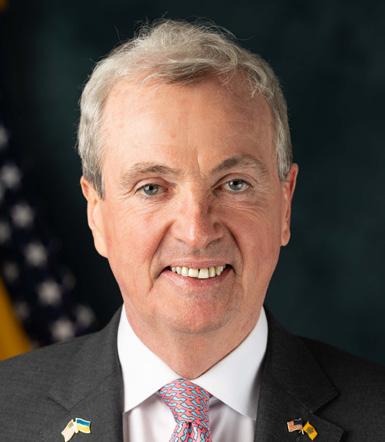
The civil suit alleges that Stake.us operates an illegal gambling business in California under the guise of a free sweepstakes business and accuses several high-profile online game providers of aiding and abetting the illegal operation by providing games to Stake.us.
All of the defendants are accused of violating California’s Unfair Competition Law (UCL), which broadly prohibits unfair competition, including any unlawful, unfair or fraudulent business act or practice.
AG Murrill added that online sweepstakes casinos utilise the same concept as the internet sweepstakes cafes that were outlawed in
“Stake.us is not a social casino because it does not offer only free, just for fun games of chance,” said the Los Angeles City Attorney’s


The Office of the Los Angeles City Attorney brought a civil suit against Stake.us

“Stake.us is not a social casino because it does not offer only free, just for fun games of chance. Instead, Stake.us provides players with the opportunity to exchange their real money for virtual casino chips, gamble those chips, and then convert the winnings back in to cash”
Office of the Los Angeles City Attorney
California Attorney General Rob Bonta issued a legal opinion in July confirming that daily fantasy sports contests are prohibited in the state.
The opinion from AG Bonta states that California law prohibits the operation of daily fantasy sports games with players physically located within California, regardless of where the operators and associated technology are located, with these games constituting wagering on sports in violation of Penal Code section 337a.
In reaching his conclusion, AG Bonta dismissed several key arguments from fantasy sports operators.
He rejected the argument that fantasy sports entry fees do not constitute a bet or wager as defined by California law, as well as the argument that fantasy sports contests are not determined by the overall outcome of real world sporting events.
“Like other kinds of wagers, both parties have a financial stake ‘in the outcome of the game, because the amount of money the operator will have to pay out depends upon whether each of the individual bets is won or lost,” said AG Bonta. “And the real-world sporting events clearly constitute ‘trial[s]’ or ‘contest[s] … of skill, speed or power of endurance of person …or between persons.’ Section 337a(a)(6) therefore applies.”
In reference to the Unlawful Internet Gambling Enforcement Act of 2006, which operators argue allows them to provide fantasy sports contests, the California AG noted that UIGEA’s

definition of ‘bet or wager’ has no bearing on Penal Code section 337a.
The Opinion also states that the entry fees for draft style games are more similar to betting on the outcome of a golf contest, as opposed to paying to participate in a golf contest.
“The draft style games are similar to wagering on a contest in other respects as well,” AG Bonta explained. “Generally, an individual who enters a golf tournament or a spelling bee can only compete in one (potentially lengthy) contest at a time. In contrast, for both traditional sports betting and daily fantasy games, an individual can bet or wager on numerous sporting events simultaneously or in rapid succession.
“Indeed, some daily fantasy operators allow an individual player to submit hundreds of separate entries for a single draft style game. As a result, the risks of addiction and large losses— the chief concerns underlying section 337a—are particularly acute.”

Office. “Instead, Stake.us provides players with the opportunity to exchange their real money for virtual casino chips, gamble those chips, and then convert the winnings back into cash. It looks like gambling, sounds like gambling, and feels like gambling because it is gambling.”
At the same time, a bill to outlaw sweepstakes made quick progress through the California legislature in mid-September and was expected to be signed into law by Governor Gavin Newsom as this issue of GINA went to press.
The bill was unanimously approved by the California Assembly on the last day of the legislative session.
Montana kicked off the trend when it became the first state to outlaw sweepstakes in May, without specifically naming sweepstakes.
The Montana prohibition applies to “online casinos, by whatever name known, which constitute internet gambling”.
This includes but is not limited to any platform, website, or application that knowingly transmits or receives gambling information, allows consumers to place a bet or wager using any form of currency, and makes payouts in any form of currency.
Online casinos that do not allow the use of currency of any kind are not considered gambling in Montana.
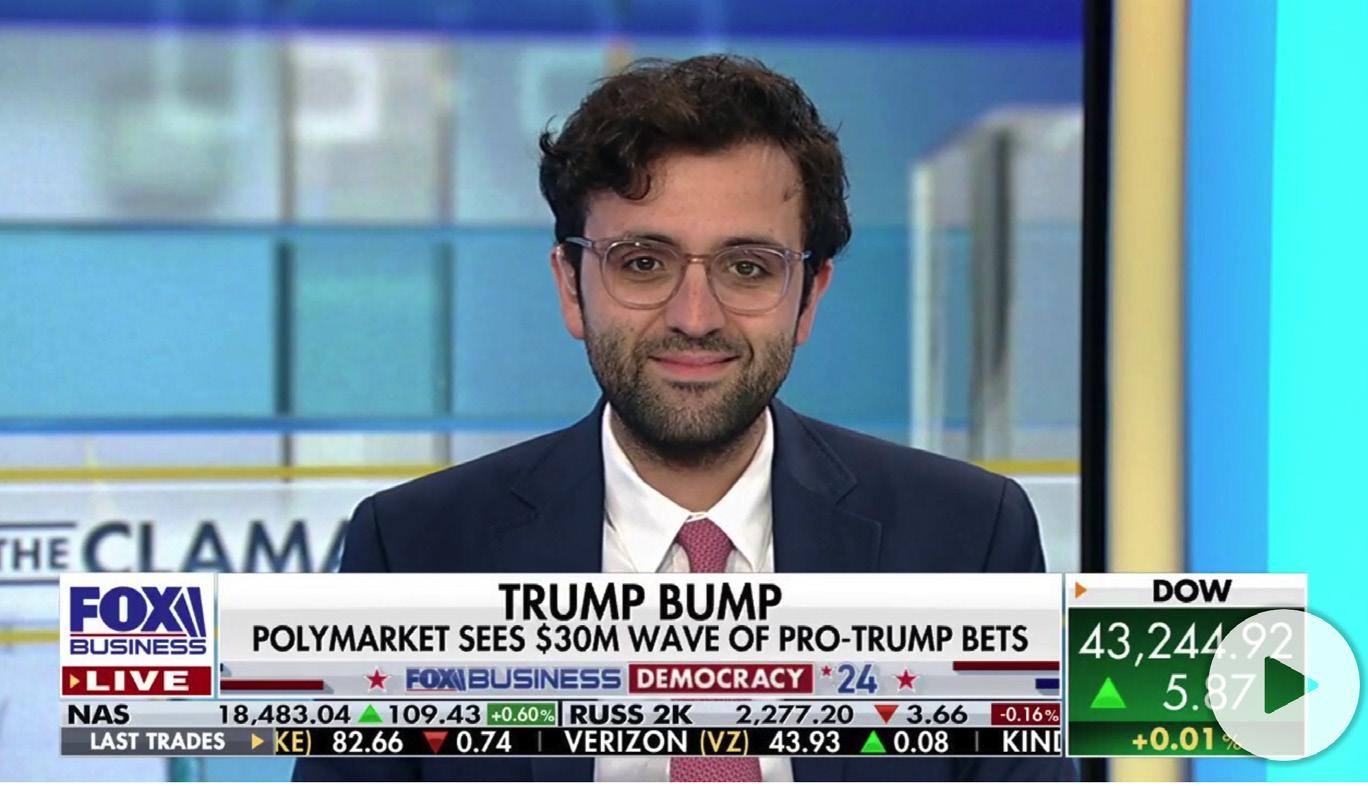
shut down illegal offshore gaming operations.”
The letter suggests that the DOJ pursue injunctive relief and website seizures under federal law; seize assets and domain names of illegal offshore gaming operators; and coordinate with financial institutions to block unlawful transactions and dismantle the financial infrastructure supporting these enterprises.

THE THIRD QUARTER of the year saw state regulators step up their efforts to combat unlicensed online gambling, while a bipartisan coalition of 50 attorneys general came together to urge the Department of Justice to take decisive action against illegal operators.
With sports betting now legal in 40 US jurisdictions, alongside legal online gaming in seven US states, the coalition is calling on US attorney general Pam Bondi to act against unlicensed offshore operators and protect the regulated gambling market in the United States.
In a letter to Bondi dated August 5, the coalition cites estimates which suggest that illegal online gaming may exceed $400 billion in annual volume in the US, resulting in more than $4 billion in lost tax revenue for states.
“Both Visa and Mastercard have already signalled their willingness to investigate and address unlawful use of their networks for gambling transactions,” said the coalition. “We should capitalize on this willingness to
While the states await action from the DOJ, they have been firing off cease and desist letters to unlicensed operators at an unprecedented rate.
The State of Michigan has been among the most active, issuing more than 130 cease and desist letters so far this year, accusing unlicensed operators of providing gambling to Michigan residents in breach of the Lawful Internet Gaming Act, the Michigan Gaming Control and Revenue Act, and the Michigan Penal Code.
The Arizona Department of Gaming (ADG) is also continuing its enforcement action against unlicensed operators at the same time as launching a statewide public education campaign focused on protecting consumers, promoting public awareness, and reducing the harms associated with unregulated gambling.
Massachusetts AG files suit against Kalshi’s sports contracts
MASSACHUSETTS ATTORNEY GENERAL Andrea Joy Campbell has filed a lawsuit against the Kalshi’s sports betting offering in the state.
AG Campbell accuses the prediction markets platform of promoting and accepting online sports wagers from Massachusetts customers without following Massachusetts laws that govern sports betting, including licensure by the Massachusetts Gaming Commission.
The Attorney General’s Office alleges that Kalshi uses an online “exchange” to offer sports wagering, under the guise of “event contracts,”
which allow bettors to place wagers through a “yes” or “no” option on the likelihood of whether an event will occur.
Kalshi sports betting markets include moneyline contracts, point spread contracts, and over-under contracts.
“Sports wagering comes with significant risk of addiction and financial loss and must be strictly regulated to mitigate public health consequences,” said AG Campbell. “This lawsuit will ensure that if Kalshi wants to be in the sports gaming business in Massachusetts, they must obtain a license and follow our laws.”
The Massachusetts Attorney General’s Office also accuses Kalshi of bypassing consumer protections by allowing players aged 18 and over to place bets on sporting outcomes, despite the legal age for sports betting in Massachusetts being 21 and older.
“Prediction market companies are expanding into sports wagering while neglecting age restrictions, player protection programs, state taxes, and other consumer protections,” said Massachusetts Gaming Commission Chair Jordan Maynard. “My fellow commissioners and I appreciate the Attorney General’s efforts to enforce the law and hold these companies accountable to Massachusetts’ rigorous standards.”
The lawsuit filed on September 12 also requests that the court prohibit Kalshi from offering sports contracts in Massachusetts while the suit is pending.n
“Sports wagering comes with significant risk of addiction and financial loss and must be strictly regulated to mitigate public health consequences”

